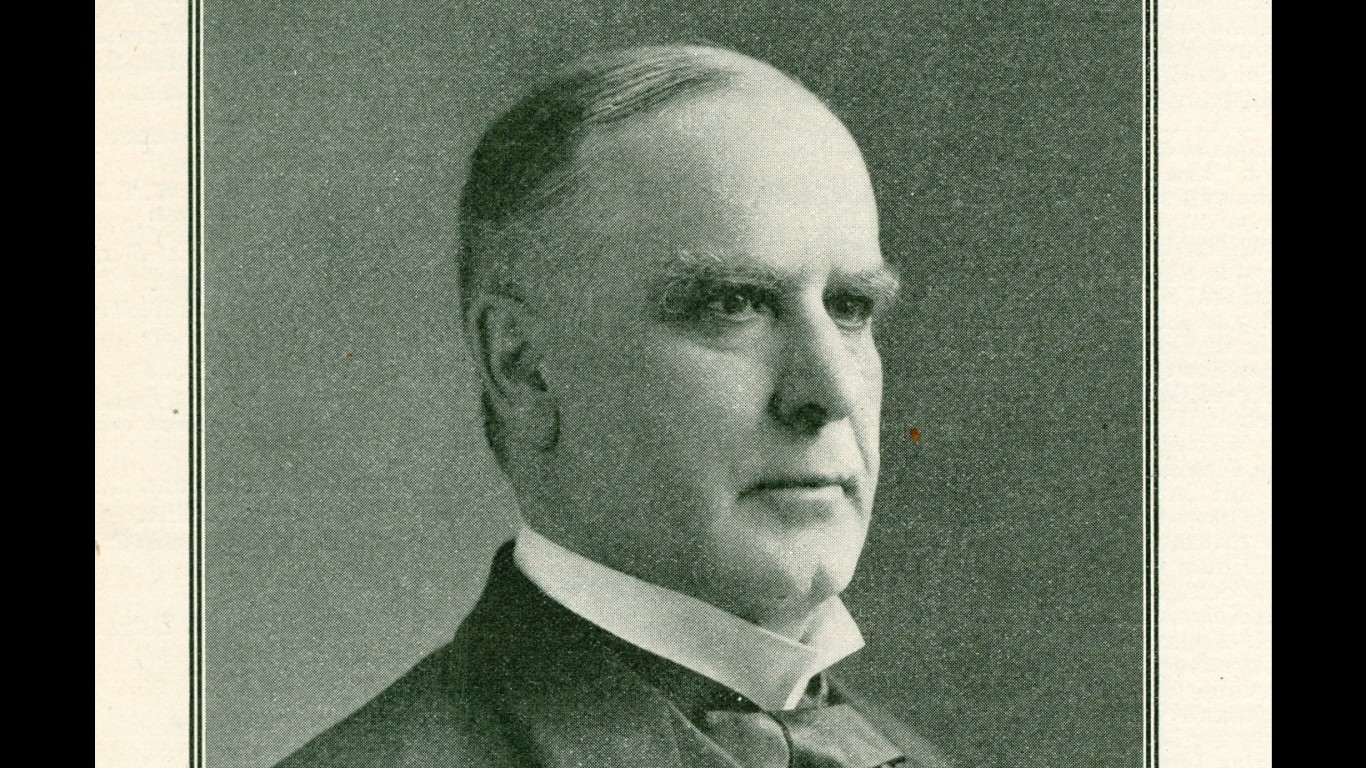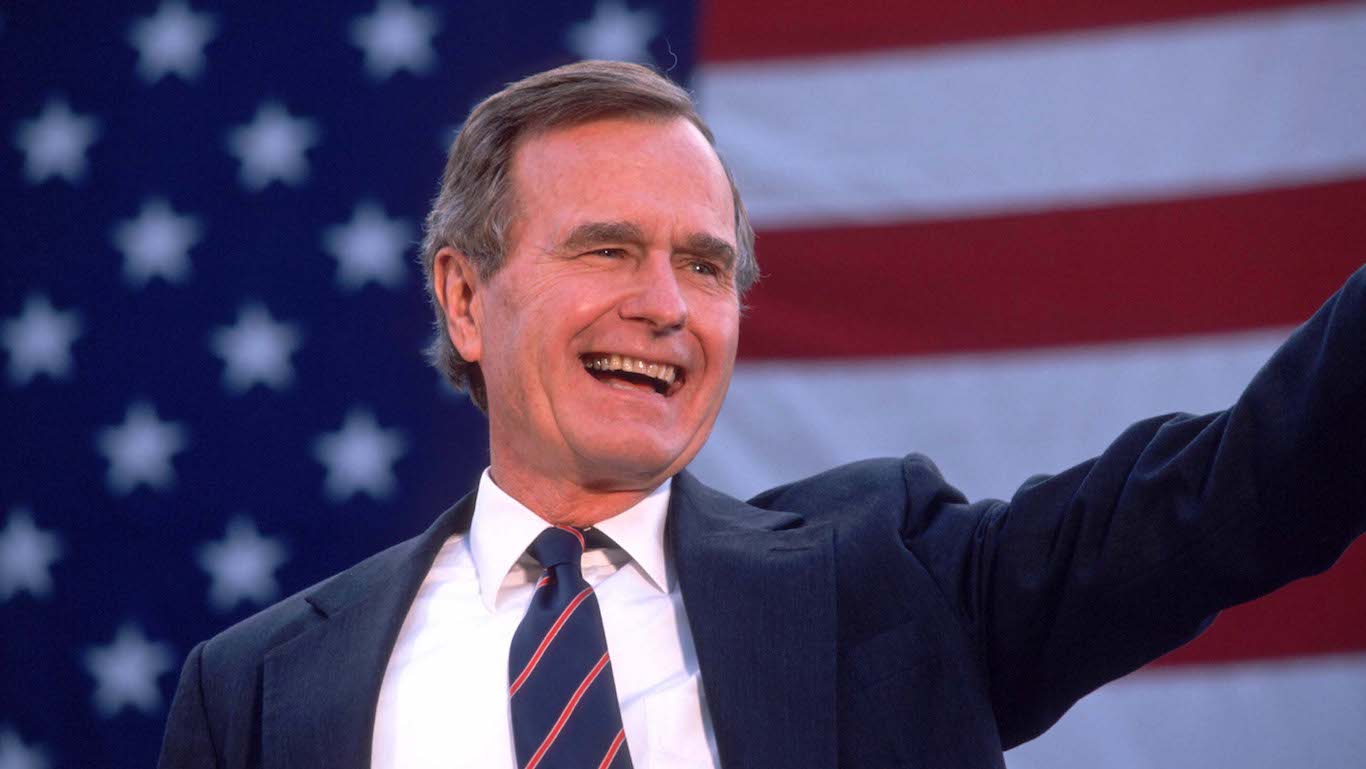
Long before the presidential election, President Donald Trump said he would “do other things” if he lost. The real estate mogul and former reality TV star has plenty of options. But what does a person do after holding the most powerful government office in the world?
To find an answer to that question, 24/7 Tempo reviewed information on all U.S. presidents from the Miller Center at the University of Virginia, the White House, and the History Channel.
Typical post-presidency occupations have changed significantly over the years. The first heads of state largely resumed their lives from before they moved to the White House. At least 12 presidents owned slaves and four returned to their plantations after leaving office. Others went back to practicing law. Several could not stay out of politics with two former presidents successfully running for Congress.
Former presidents in recent history have spent the immediate years after leaving the nation’s highest office writing memoirs, keeping lucrative speaking schedules, serving on boards of corporations, and overseeing the establishment of their presidential library.
There are also those presidents who stay out of the public view entirely. Many contemporary commanders in chief also earned extravagant wealth. Here is the net worth of every American president from Washington to Trump.
Click here to see what every president did after leaving the White House
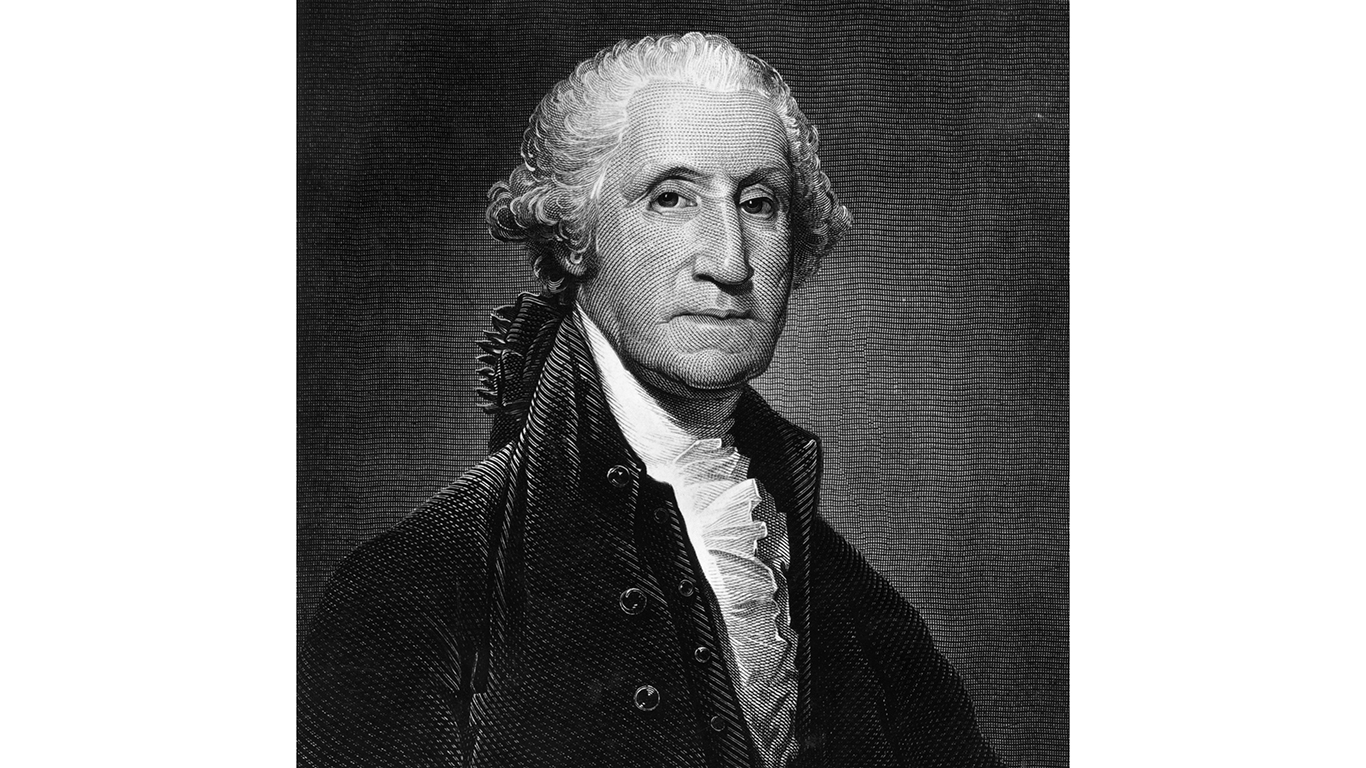
George Washington
> Presidential term: 1789-1797
> Occupation after leaving office: Plantation owner
Though highly admired, George Washington declined to serve a third term as president and retired to his plantation in Virginia. The estate, known as Mount Vernon, had been neglected while Washington was in office. Washington spent the last two years of his life trying to make it productive.
[in-text-ad]
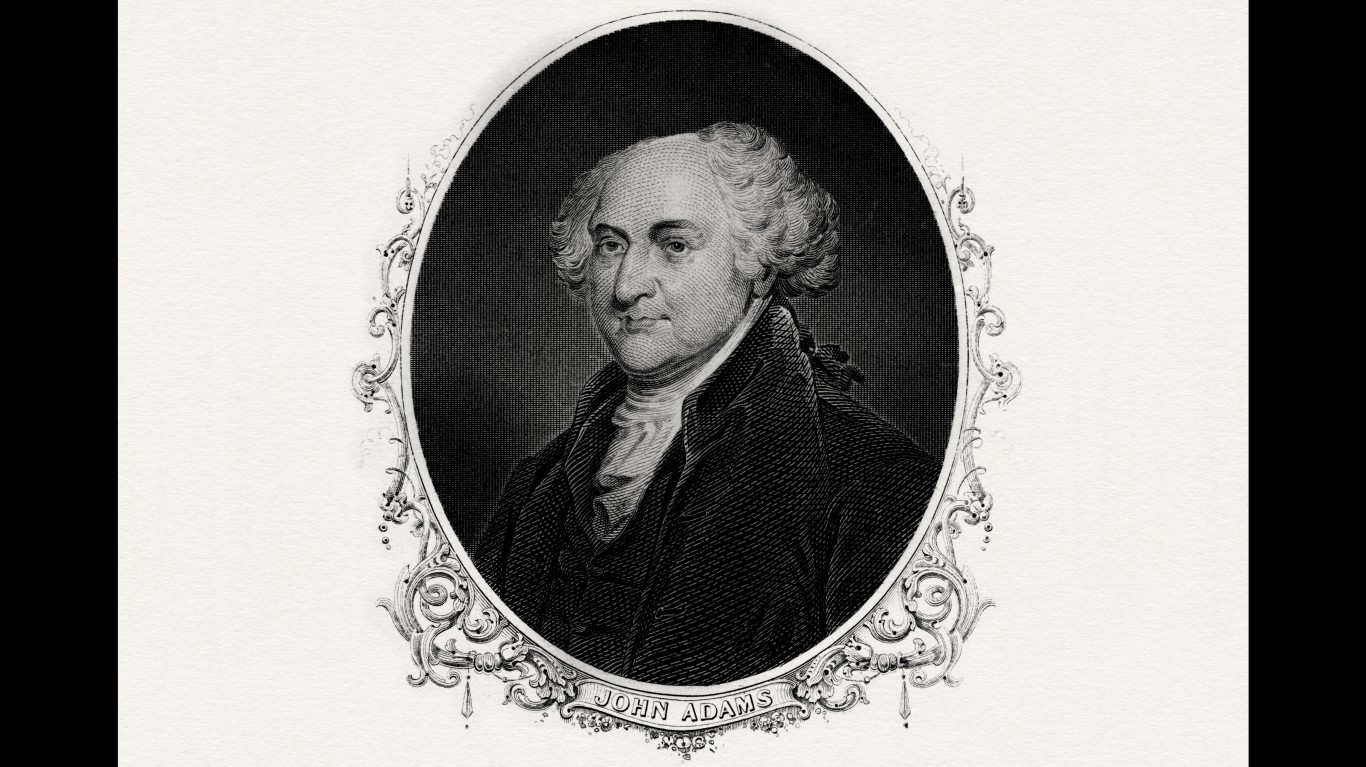
John Adams
> Presidential term: 1797-1801
> Occupation after leaving office: Writer
John Adams became a prolific writer in his retirement. He spent about 25 years after leaving office writing columns, books, and letters. He mostly stayed in his home in Quincy, Massachusetts.
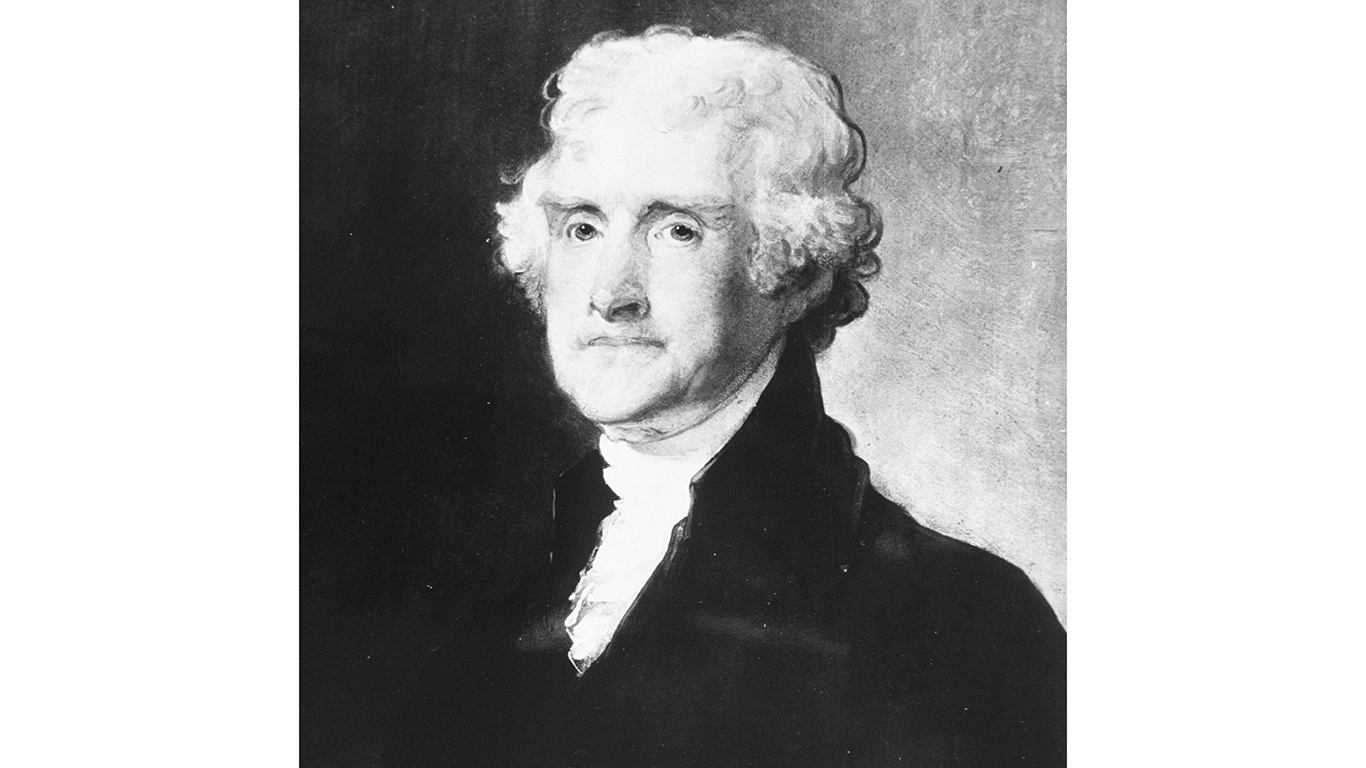
Thomas Jefferson
> Presidential term: 1801-1809
> Occupation after leaving office: Educator
Thomas Jefferson spent most of his retirement doing scientific experiments and research. He also at that time founded the University of Virginia. He not only designed the campus, but played a major role in setting up its curriculum, making sure the college had no religious affiliation.
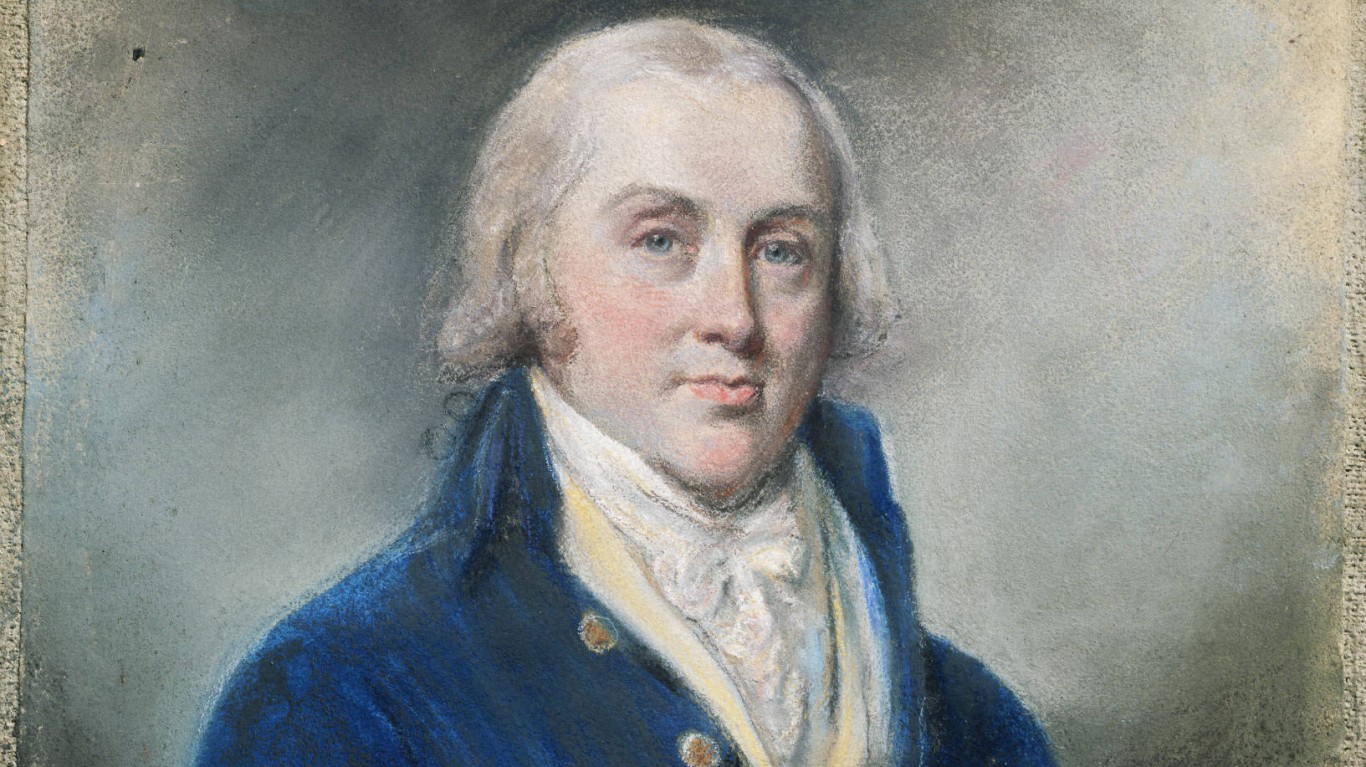
James Madison
> Presidential term: 1809-1817
> Occupation after leaving office: Rector of the University of Virginia
After leaving the White House, James Madison retired to his plantation in Virginia and remained active in many civic causes. In 1826, the former president became rector of the University of Virginia.
[in-text-ad-2]
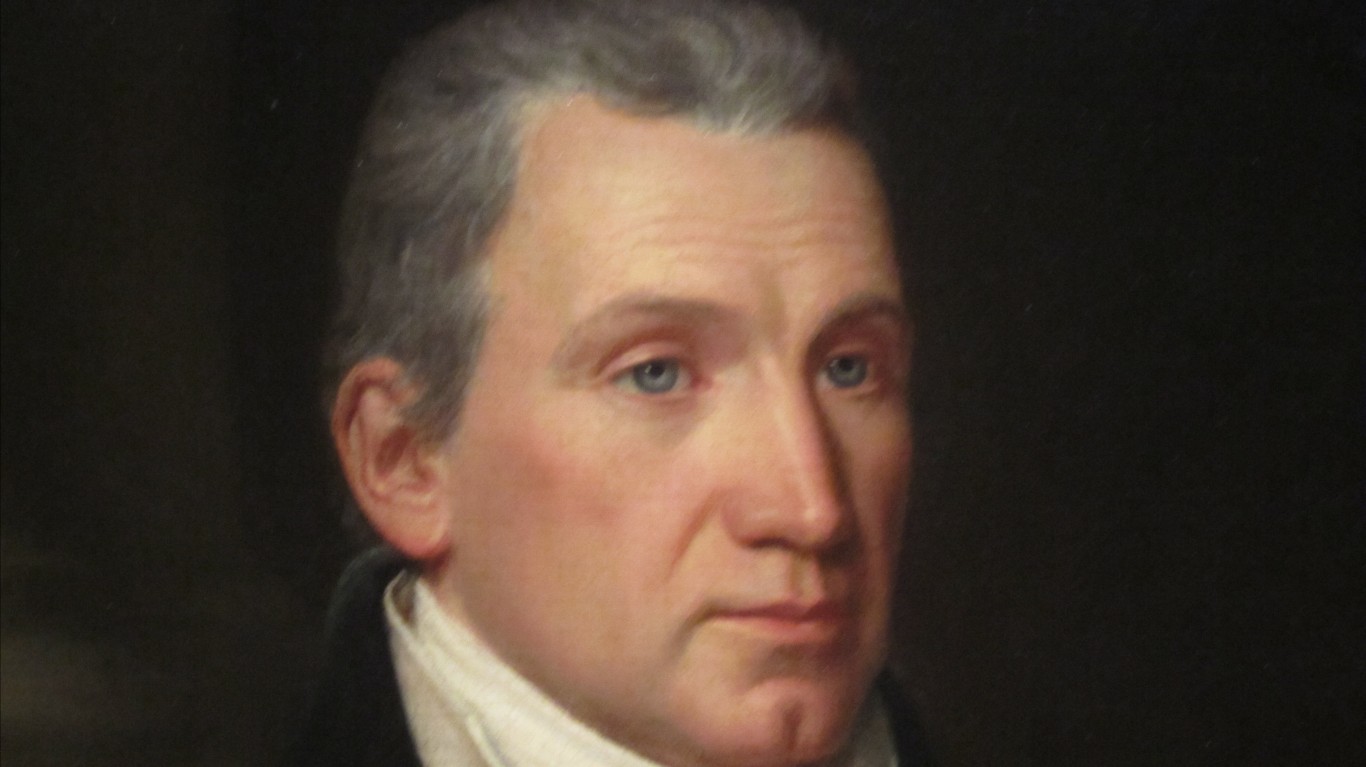
James Monroe
> Presidential term: 1817-1825
> Occupation after leaving office: Served on the Board of Visitors of the University of Virginia
Immediately after leaving office, James Monroe worked towards paying off his huge financial debt accumulated while in office. Later, Monroe served on the Board of Visitors of the University of Virginia and presided over a new constitution of the state of Virginia in 1829.
John Quincy Adams
> Presidential term: 1825-1829
> Occupation after leaving office: Congressman from Massachusetts
A year after he left the White House, John Quincy Adams was elected to the House of Representatives. The former president remained a leading congressman for the rest of his life. His nickname was “Old Man Eloquent” because of his support of freedom of speech, universal education, and his anti-slavery stance.
[in-text-ad]
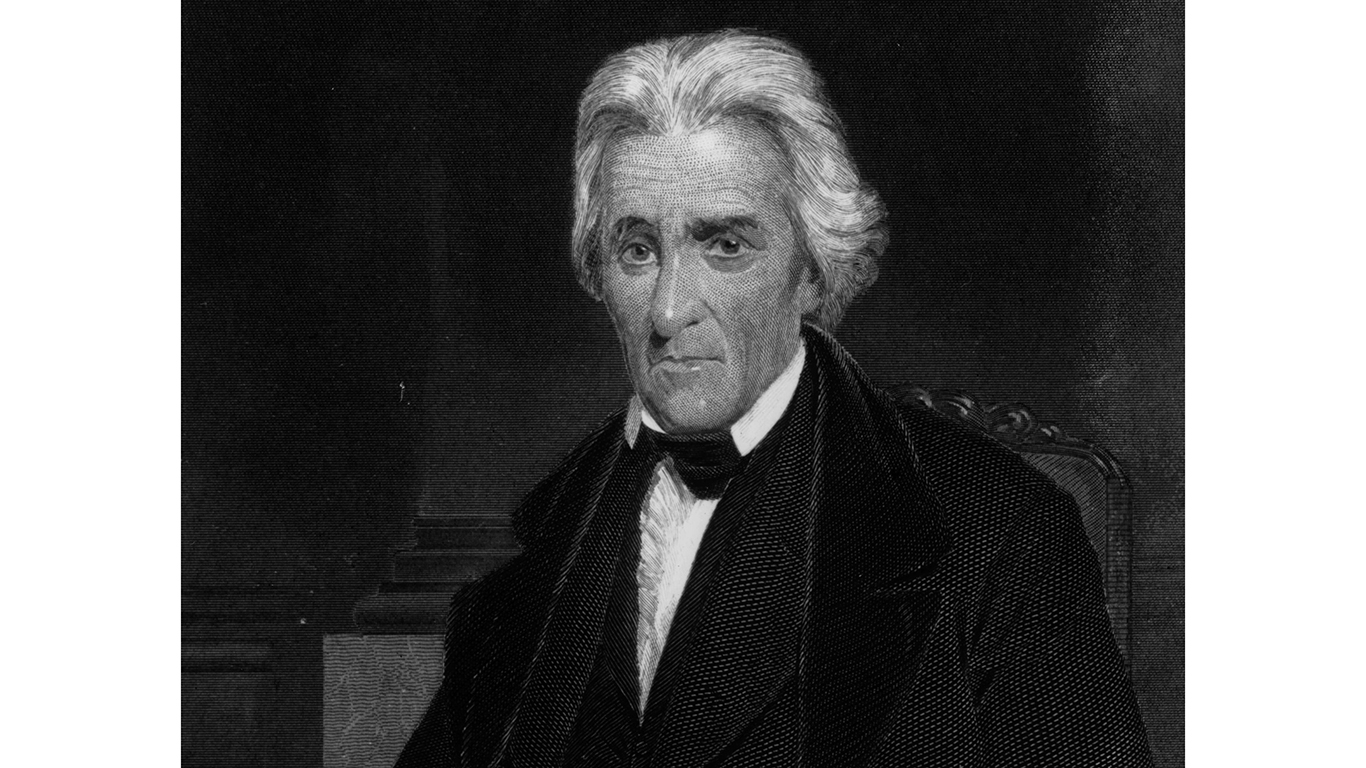
Andrew Jackson
> Presidential term: 1829-1837
> Occupation after leaving office: Political activist
Andrew Jackson was a symbol of democracy. He had many admirers whom he was glad to see in his plantation, The Hermitage, near Nashville, Tennessee. Jackson informally advised Martin Van Buren while he was in office and campaigned for the annexation of Texas.
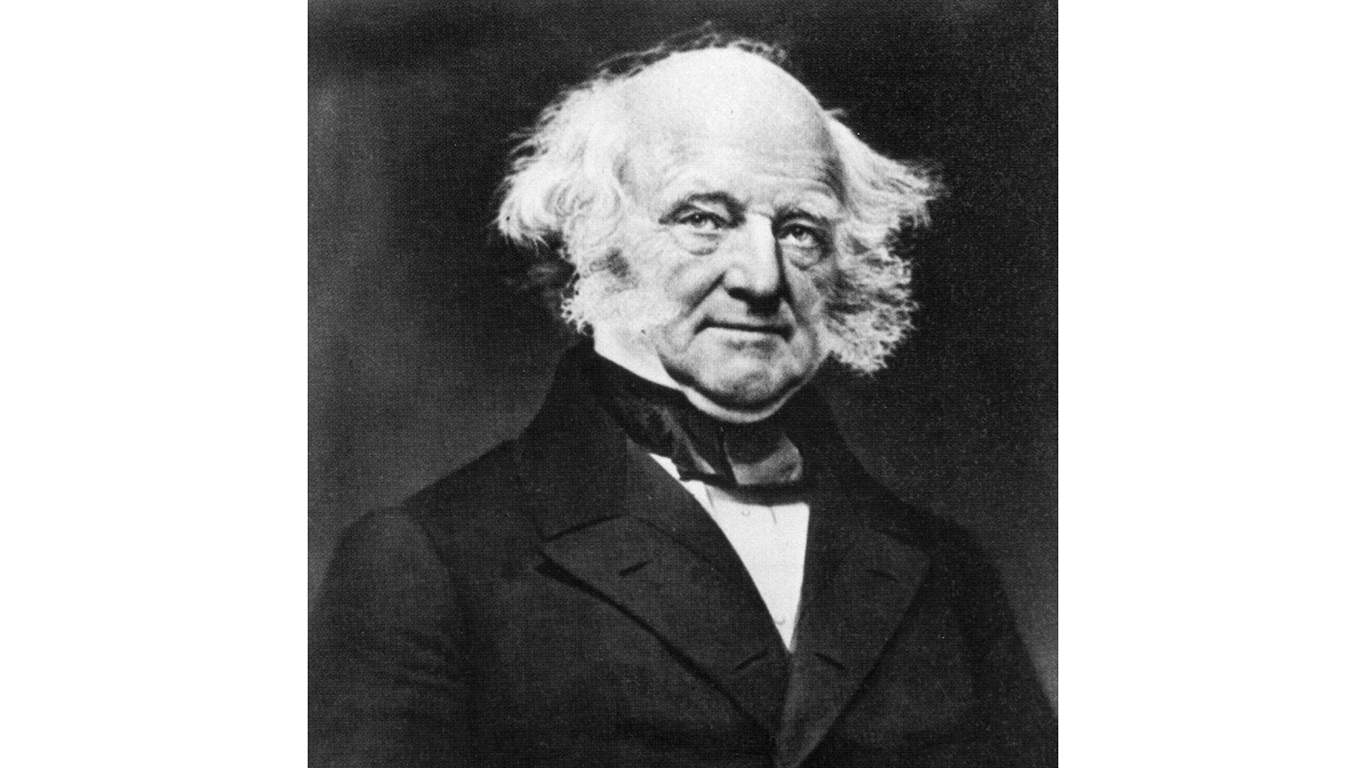
Martin Van Buren
> Presidential term: 1837-1841
> Occupation after leaving office: Anti-slavery activist
Martin Van Buren, the first president to be born a U.S. citizen and not a British subject, tried to win the Democratic presidential nomination four years after losing the White House, but he failed again. After that, he retired, worked on his memoirs and continued to argue against a pro-southern faction within the Democratic Party and slavery.
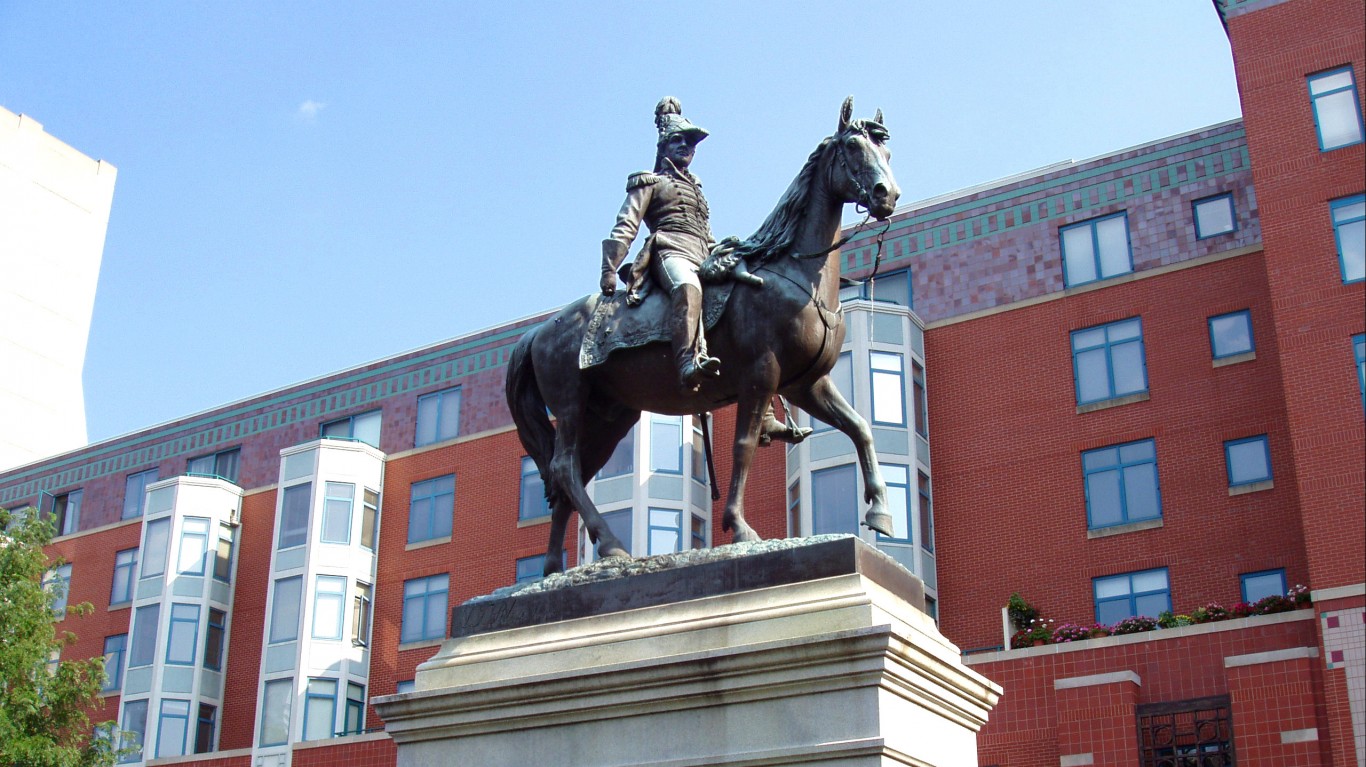
William Henry Harrison
> Presidential term: 1841-1841
> Occupation after leaving office: Died in office
William Henry Harrison served as president for barely a month. His inaugural address, the longest in history, was given in very cold weather. Harrison was not wearing a coat. He fell sick and died from pneumonia four weeks later.
[in-text-ad-2]
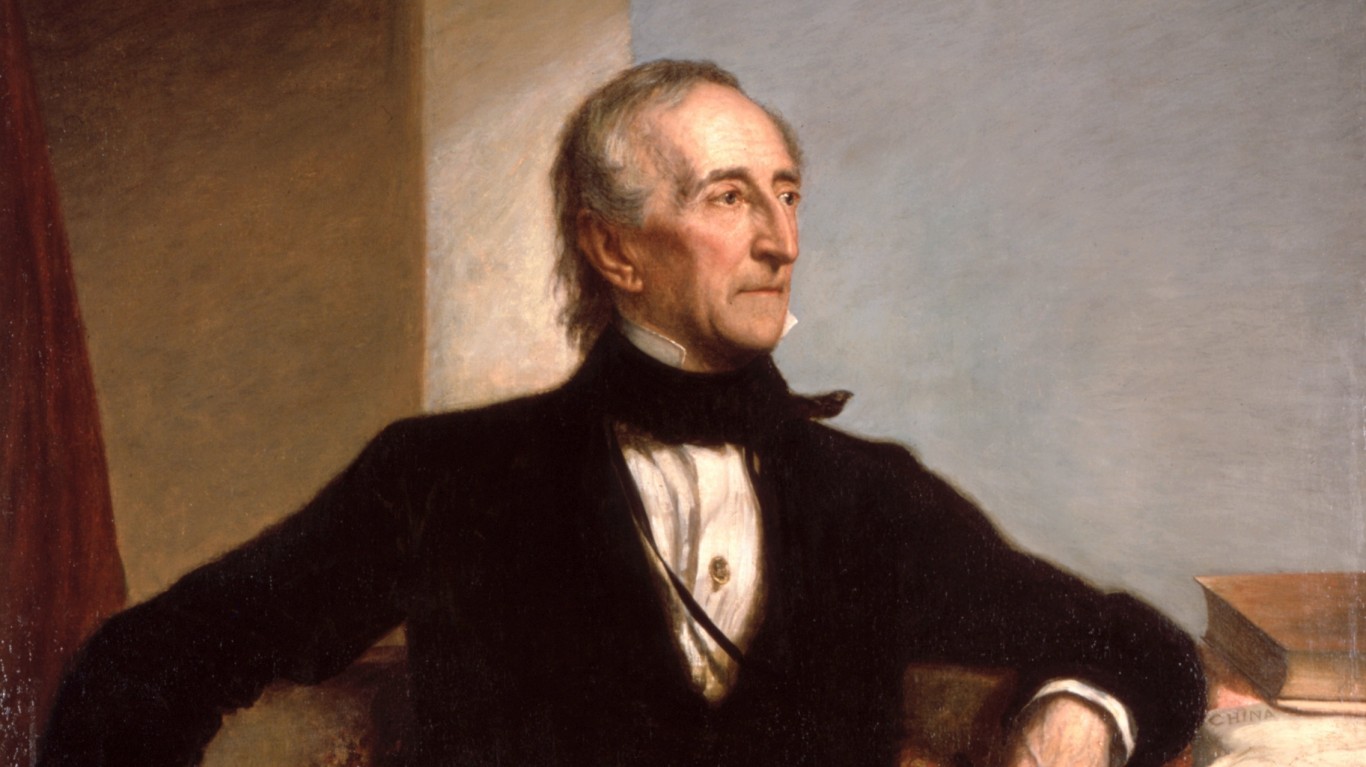
John Tyler
> Presidential term: 1841-1845
> Occupation after leaving office: Plantation owner
After leaving the White House, John Tyler retired at his plantation in Virginia. He voted in favor of Virginia seceding from the United States and was elected to the Confederate House of Representatives, but he died before his term was supposed to start.
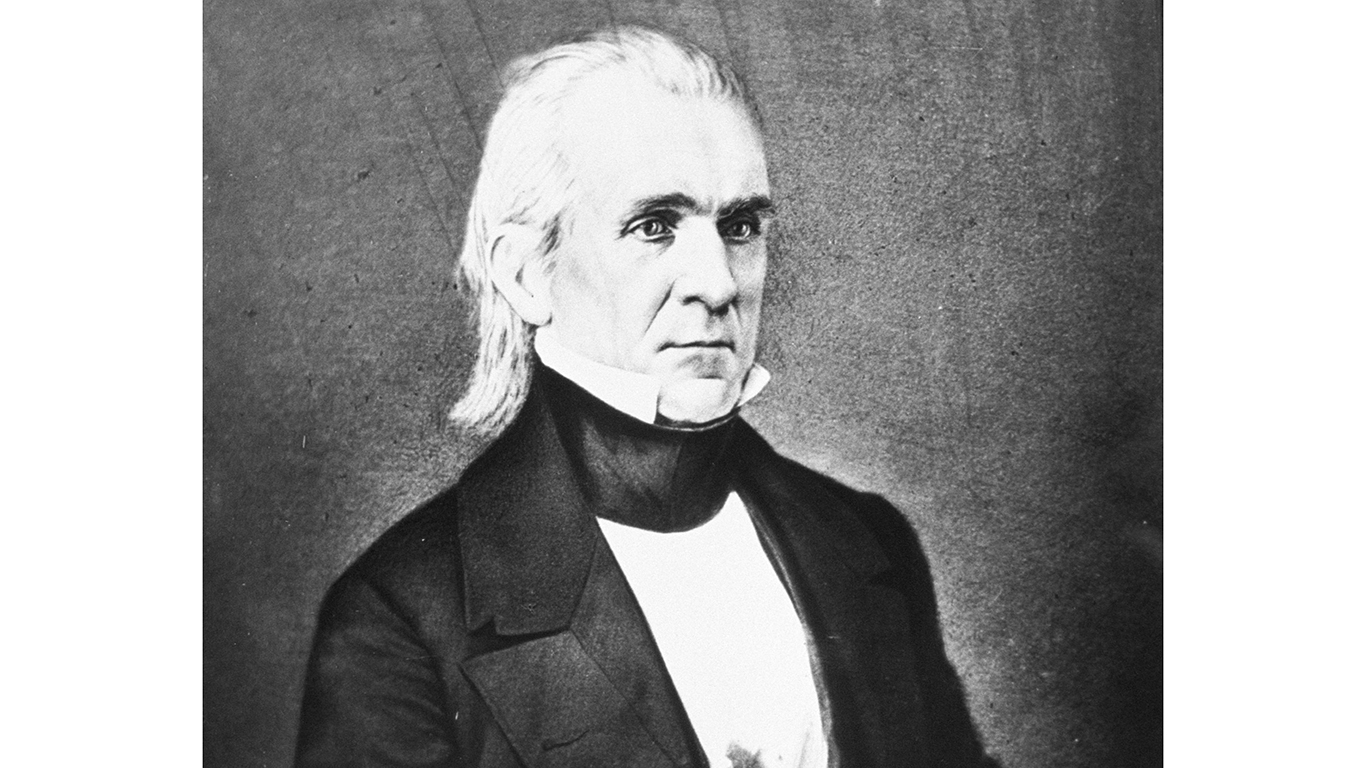
James K. Polk
> Presidential term: 1845-1849
> Occupation after leaving office: Died soon after leaving office
James K. Polk died about four months after leaving the White House.
[in-text-ad]
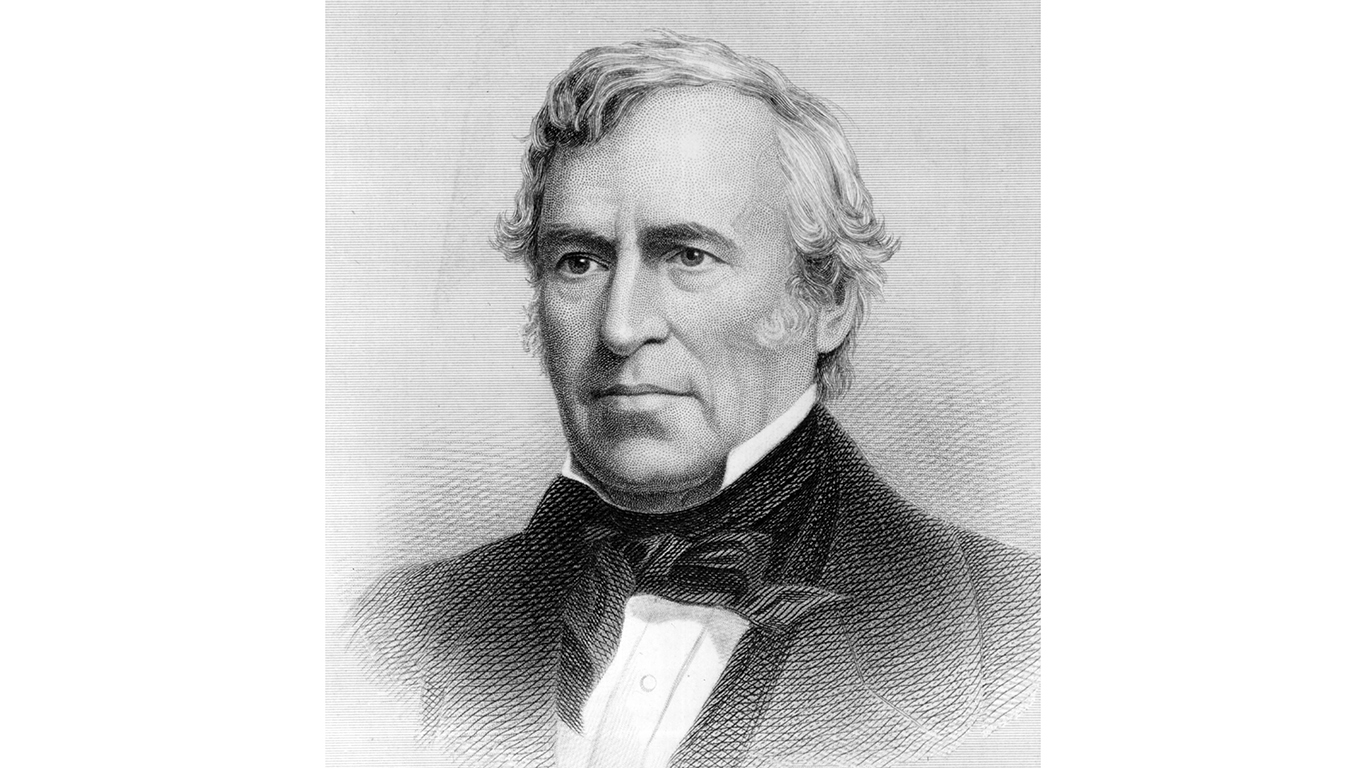
Zachary Taylor
> Presidential term: 1849-1850
> Occupation after leaving office: Died in office
Zachary Taylor became the second president to die while in office (after William Henry Harrison). He served for 16 months.
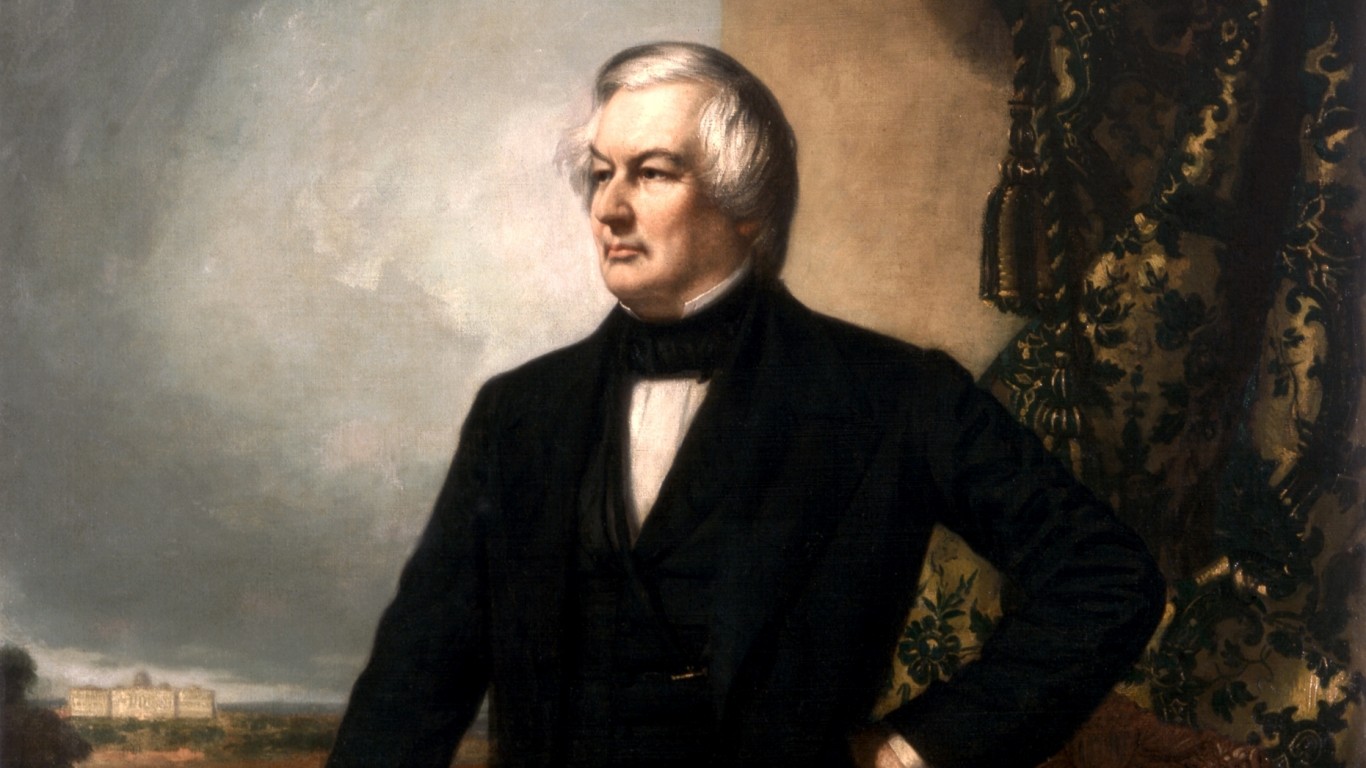
Millard Fillmore
> Presidential term: 1850-1853
> Occupation after leaving office: Activist
Three years after leaving the White House, in 1856, Millard Fillmore was nominated by the anti-immigrant (and strangely-named) Know-Nothing Party for president. He finished third. After that he retired in Buffalo, New York, keeping busy with several causes and charities.
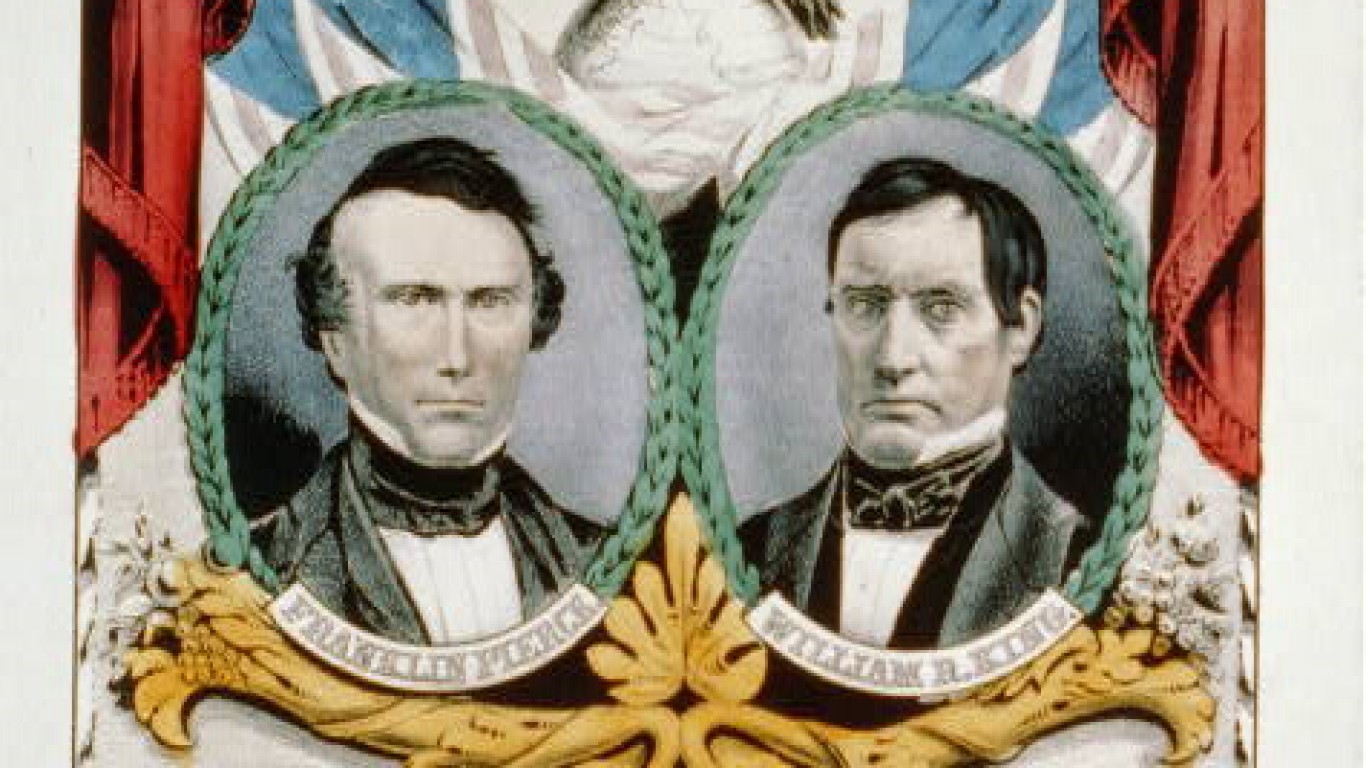
Franklin Pierce
> Presidential term: 1853-1857
> Occupation after leaving office: Quiet retirement
Franklin Pierce became a recluse after leaving the White House. He retired in New Hampshire and remained out of public view.
[in-text-ad-2]
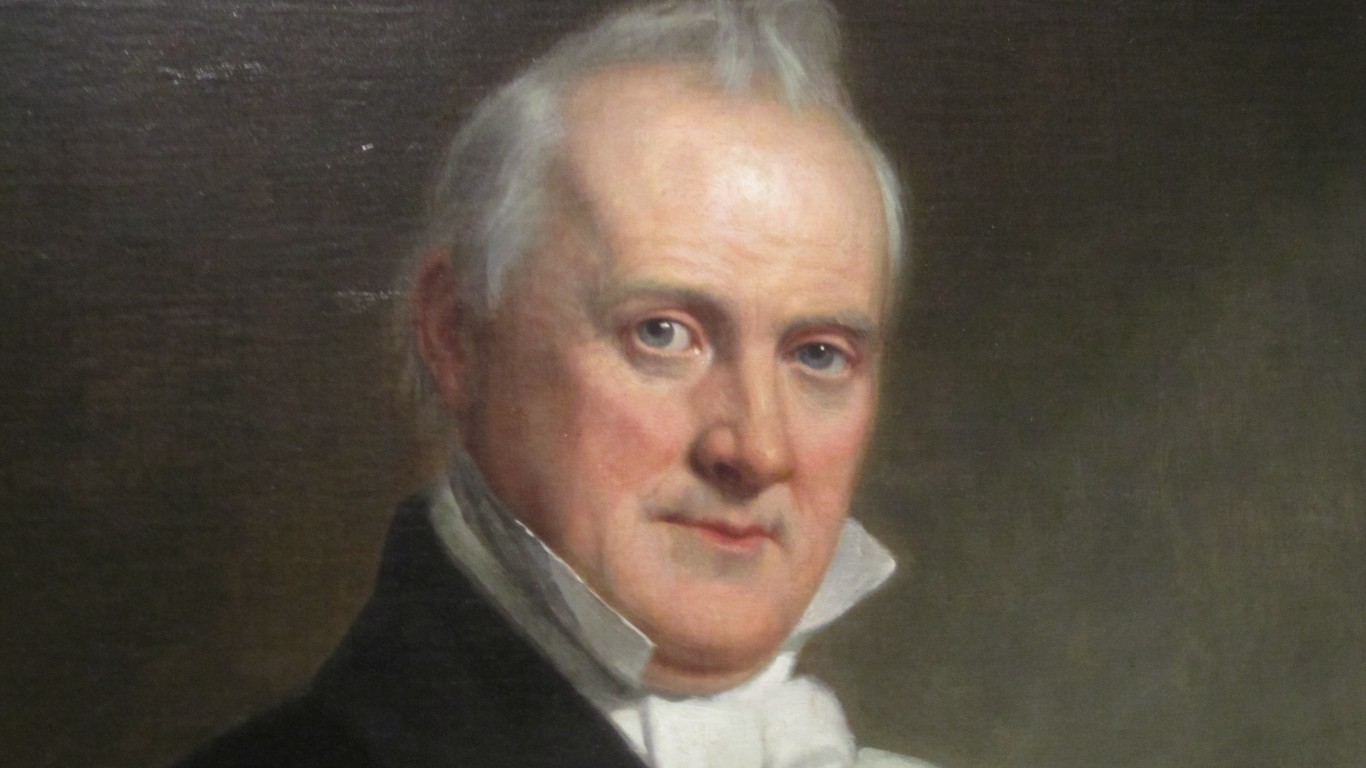
James Buchanan
> Presidential term: 1857-1861
> Occupation after leaving office: Writer
James Buchanan was largely blamed for the Civil War. After leaving office, he wrote a book explaining his side of the story. After that, he remained out of public view.
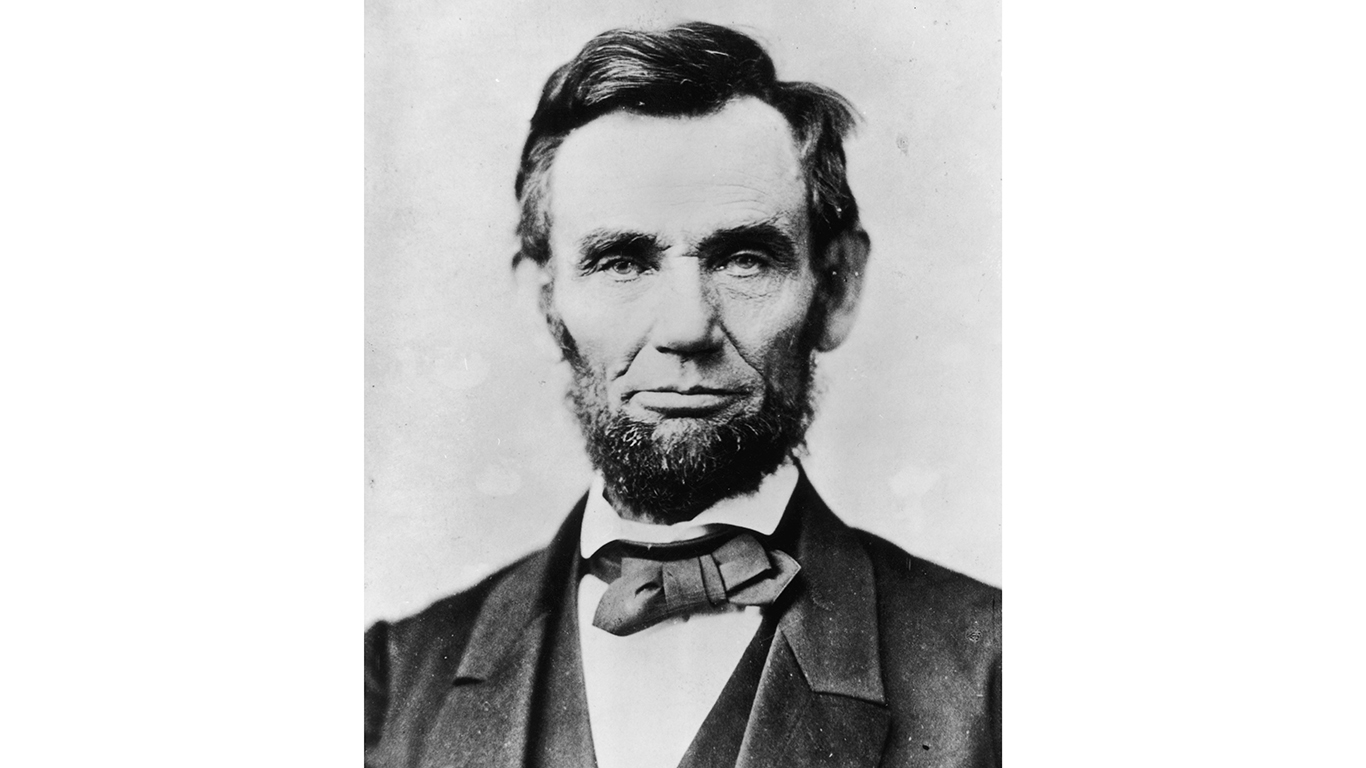
Abraham Lincoln
> Presidential term: 1861-1865
> Occupation after leaving office: Assassinated while in office
Abraham Lincoln was assassinated by a Confederate sympathizer on April 14, 1865 while still in office.
[in-text-ad]
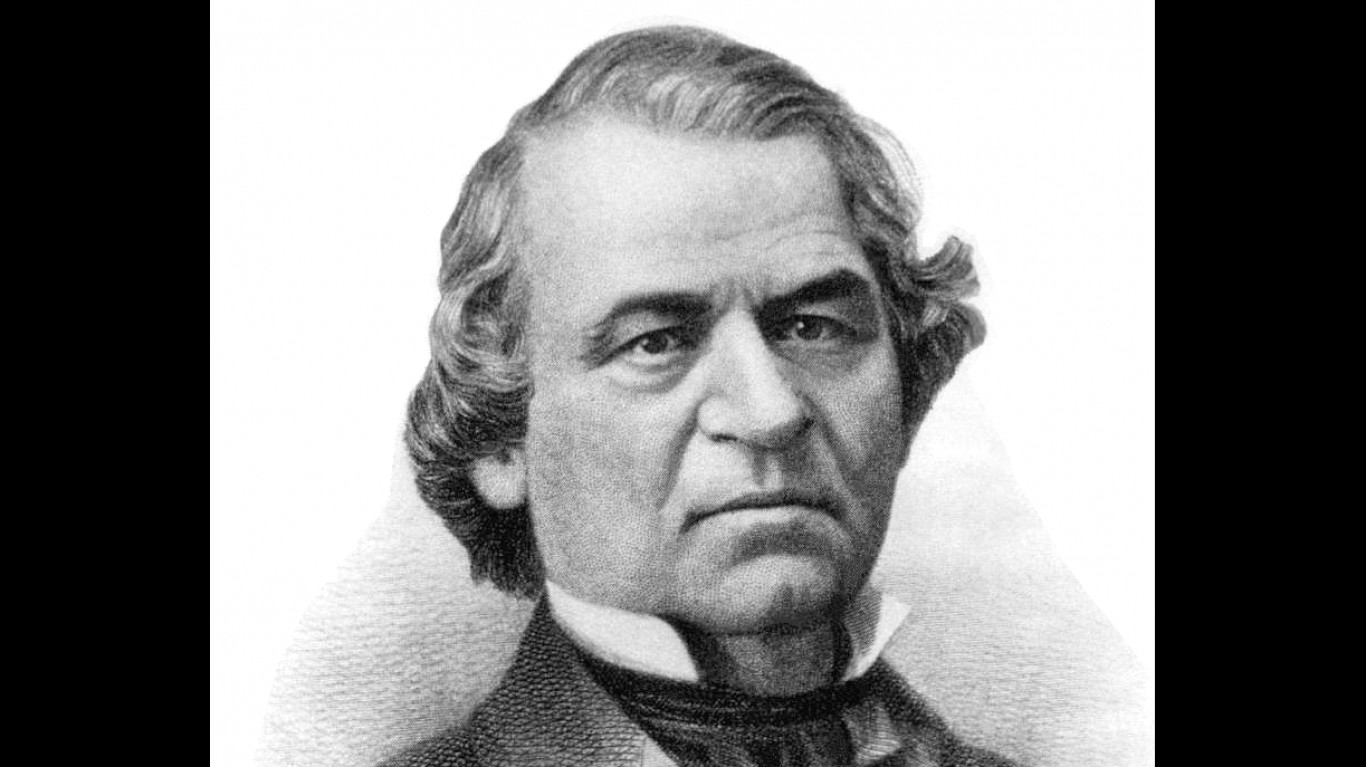
Andrew Johnson
> Presidential term: 1865-1869
> Occupation after leaving office: Senator
After leaving the White House, Andrew Johnson unsuccessfully ran for Congress twice before becoming a senator in 1875.
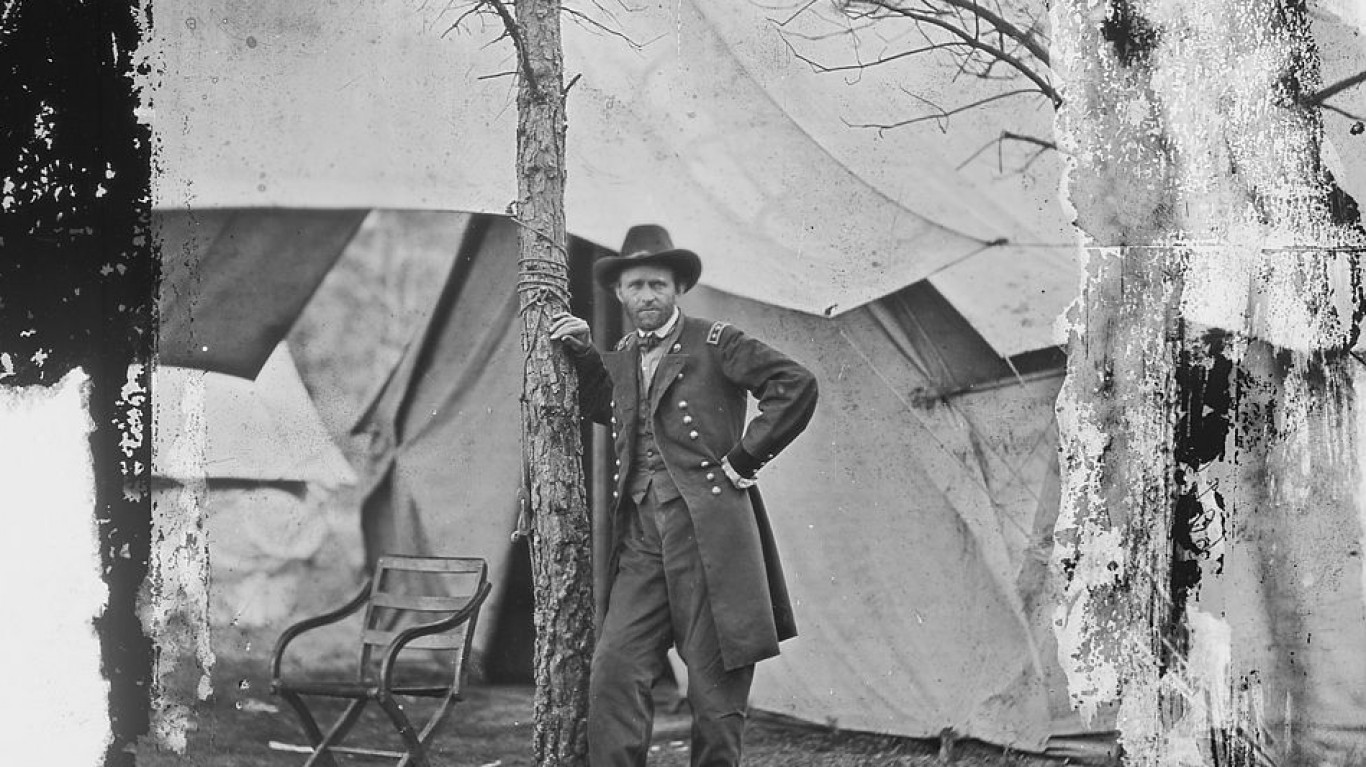
Ulysses S. Grant
> Presidential term: 1869-1877
> Occupation after leaving office: Traveler and writer
Ulysses S. Grant traveled around the world for two years after leaving the White House. Following the collapse of his son’s financial firm, in which Grant had invested, the former president decided to write his memoirs to earn money.
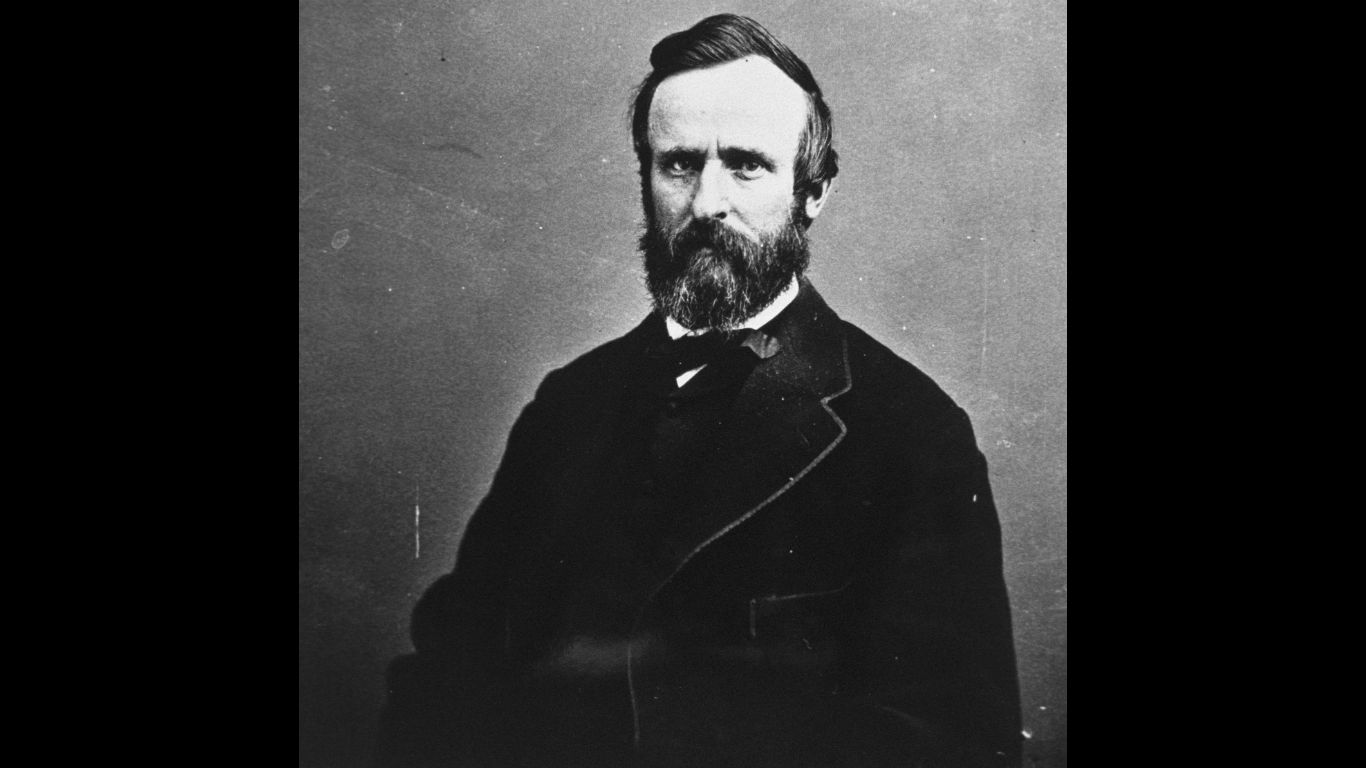
Rutherford B. Hayes
> Presidential term: 1877-1881
> Occupation after leaving office: Social activist
Rutherford B. Hayes retired in Fremont, Ohio, from where he worked to promote social causes, education, and prison reform. He was a major contributor to two education funds benefiting students in the South.
[in-text-ad-2]
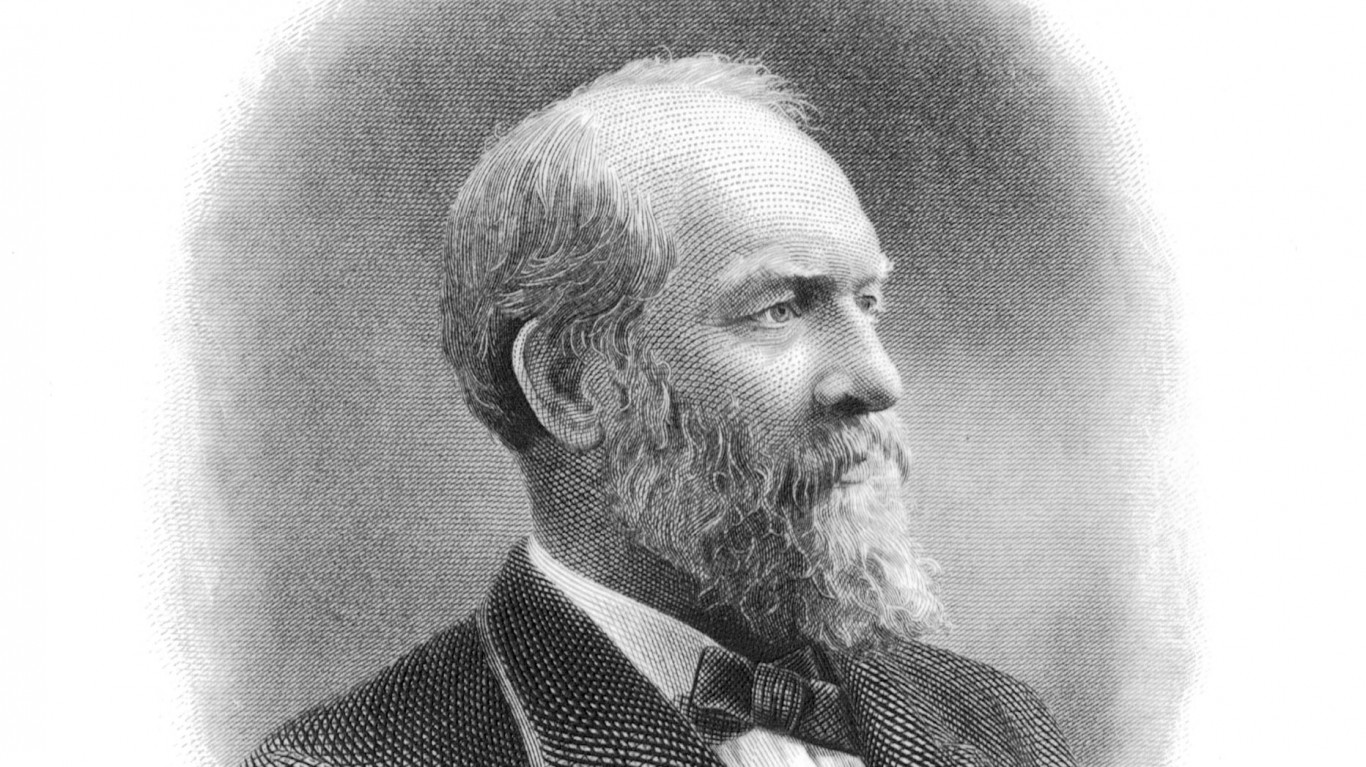
James Garfield
> Presidential term: 1881-1881
> Occupation after leaving office: Assassinated while in office
James Garfield was shot by a disgruntled lawyer who sought to be appointed to a job in the Department of State. The president suffered for three months from his wound. He died from an infection on Sept. 19, 1881.
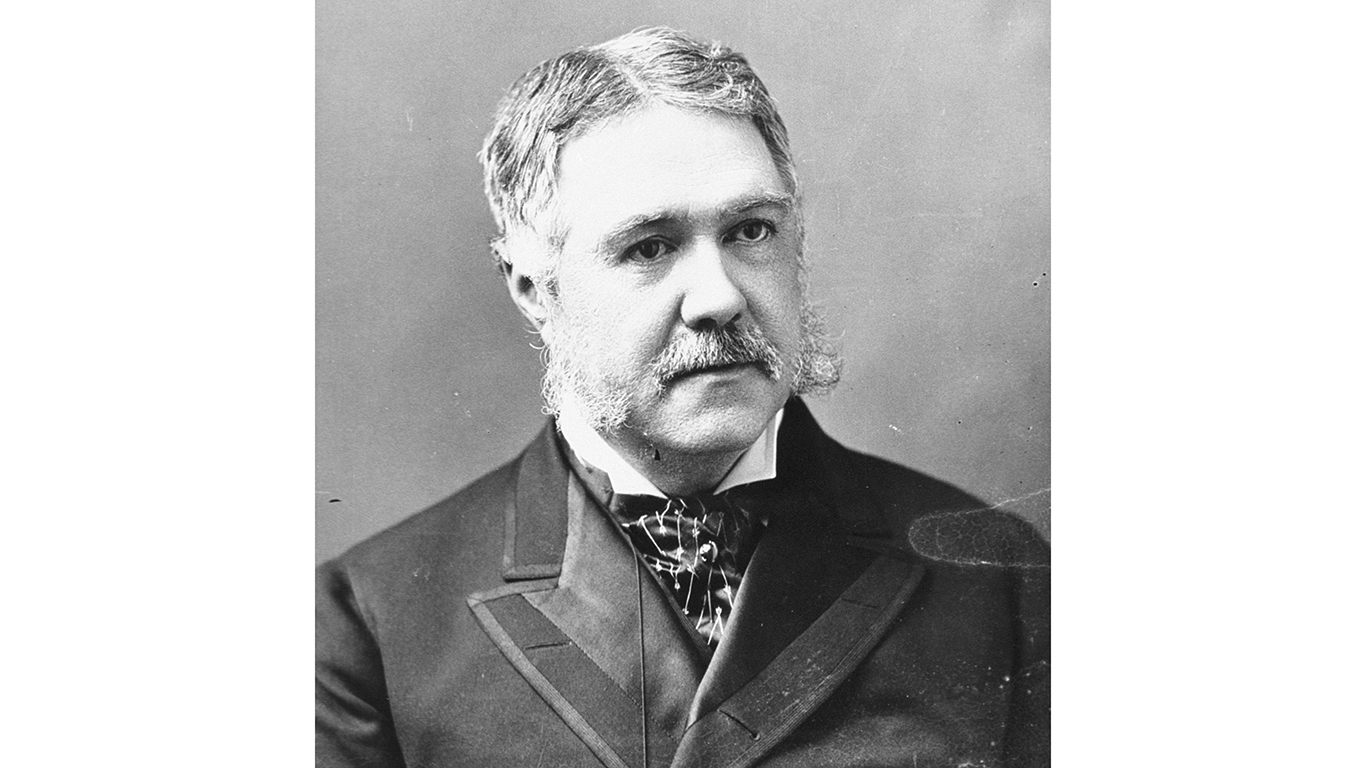
Chester A. Arthur
> Presidential term: 1881-1885
> Occupation after leaving office: Lawyer
After leaving the White House, Chester A. Arthur moved to New York to resume his career as a lawyer. He died about a year and a half later.
[in-text-ad]
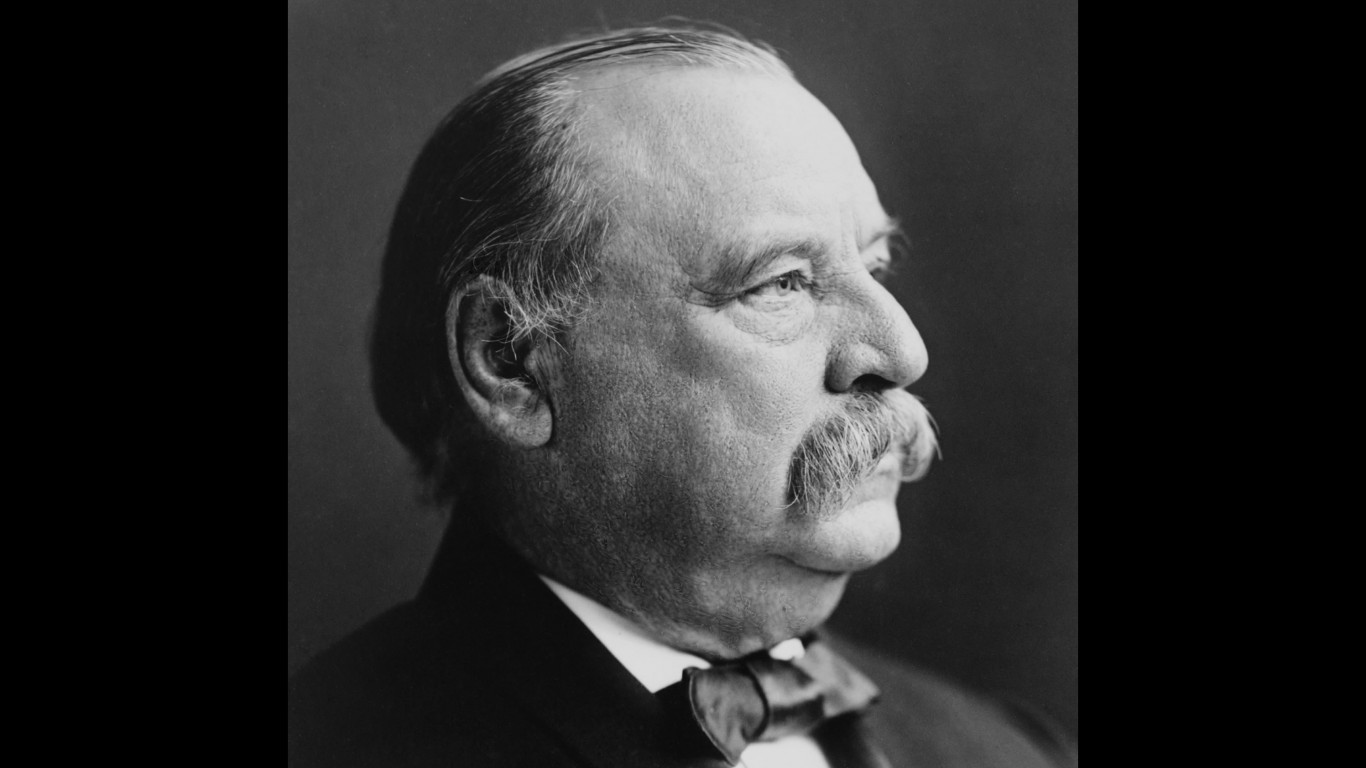
Grover Cleveland
> Presidential term: 1885-1889 and 1893-1897
> Occupation after leaving office: Trustee of Princeton University
Grover Cleveland retired from politics to his home in Princeton, New Jersey. There he served as a trustee of Princeton University from 1901 until his death in 1908.
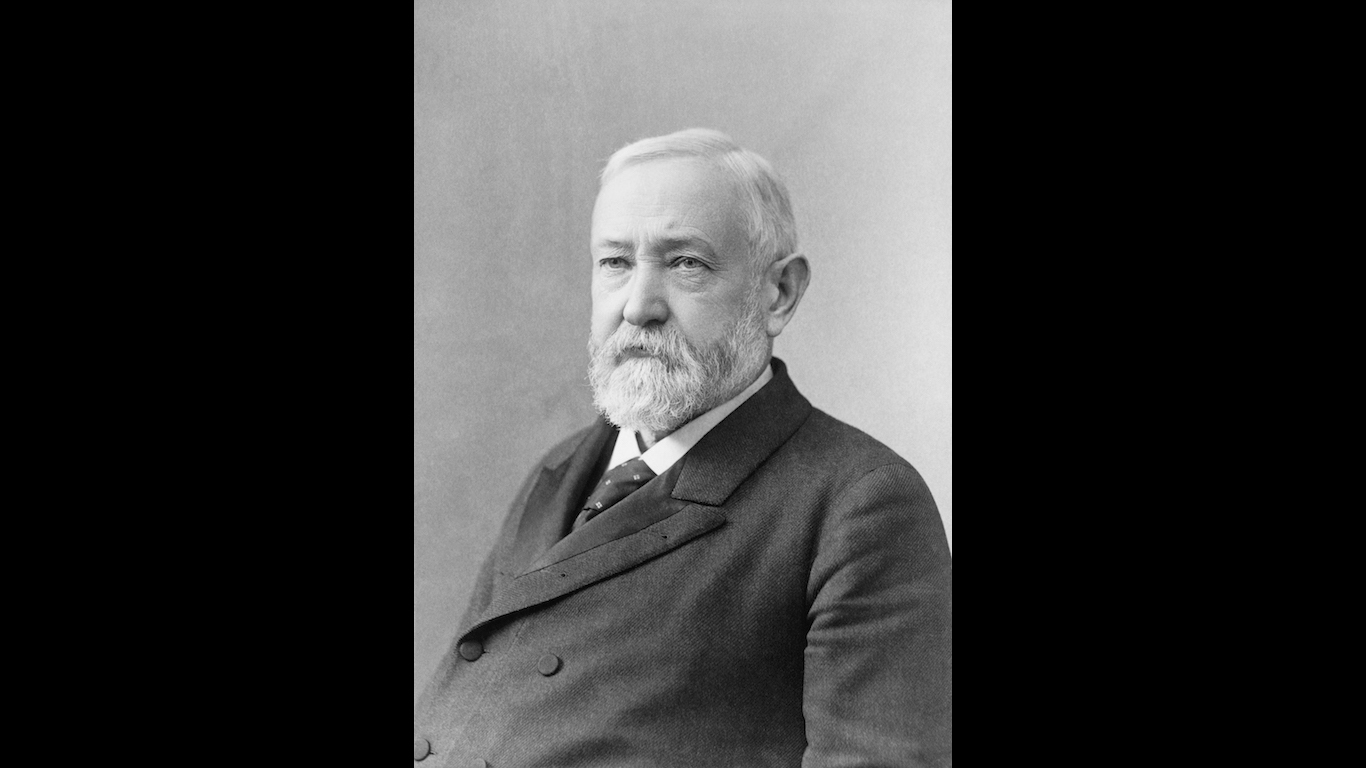
Benjamin Harrison
> Presidential term: 1889-1893
> Occupation after leaving office: Lawyer
Benjamin Harrison moved back to Indianapolis where he practiced law. He was a respected public speaker and the leading counsel for Venezuela in its legal dispute over boundaries with Great Britain.
William McKinley
> Presidential term: 1897-1901
> Occupation after leaving office: Assassinated while in office
McKinley died eight days after being shot by an anarchist who claimed the president was the “enemy of the people.”
[in-text-ad-2]
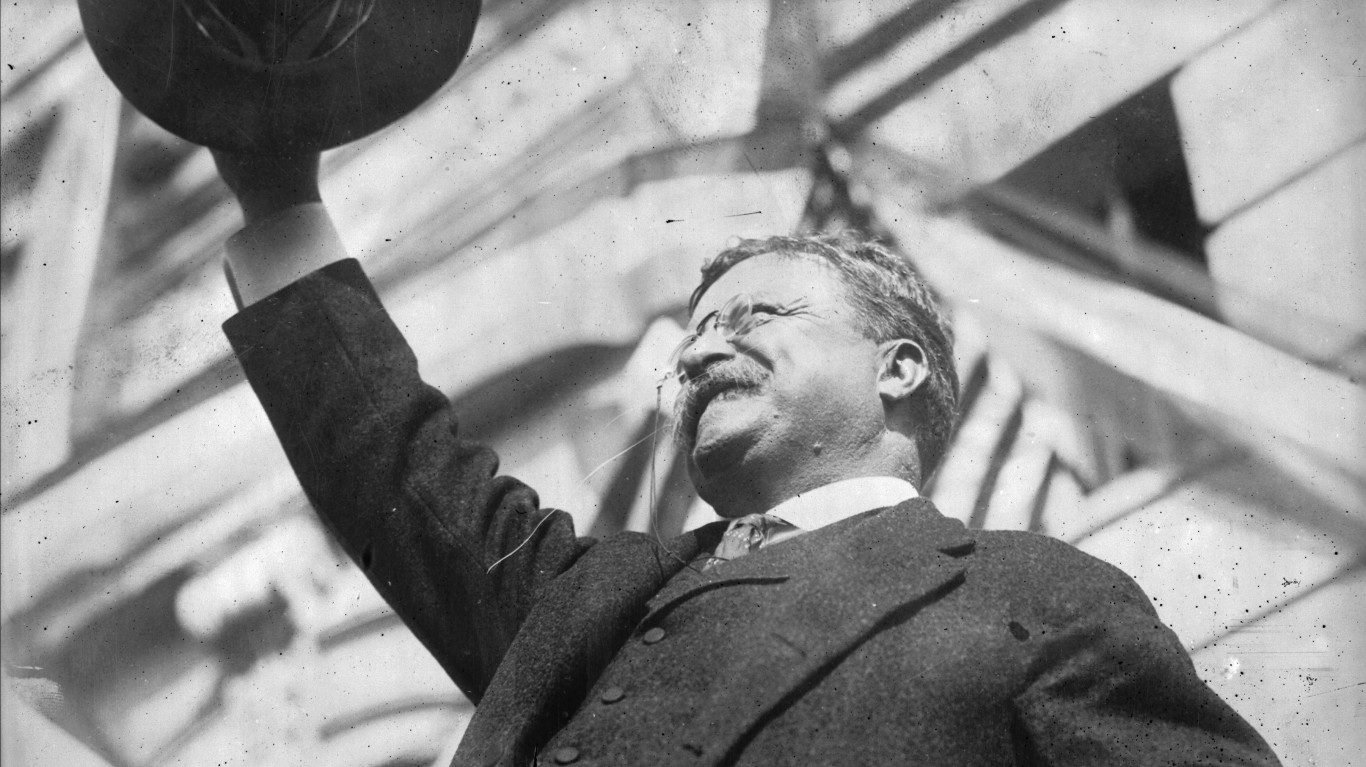
Theodore Roosevelt
> Presidential term: 1901-1909
> Occupation after leaving office: Writer
After leaving the White House, Theodore Roosevelt went on an expedition exploring the Amazon region. After returning to the United States, the former president spent his time writing scientific essays and history books.
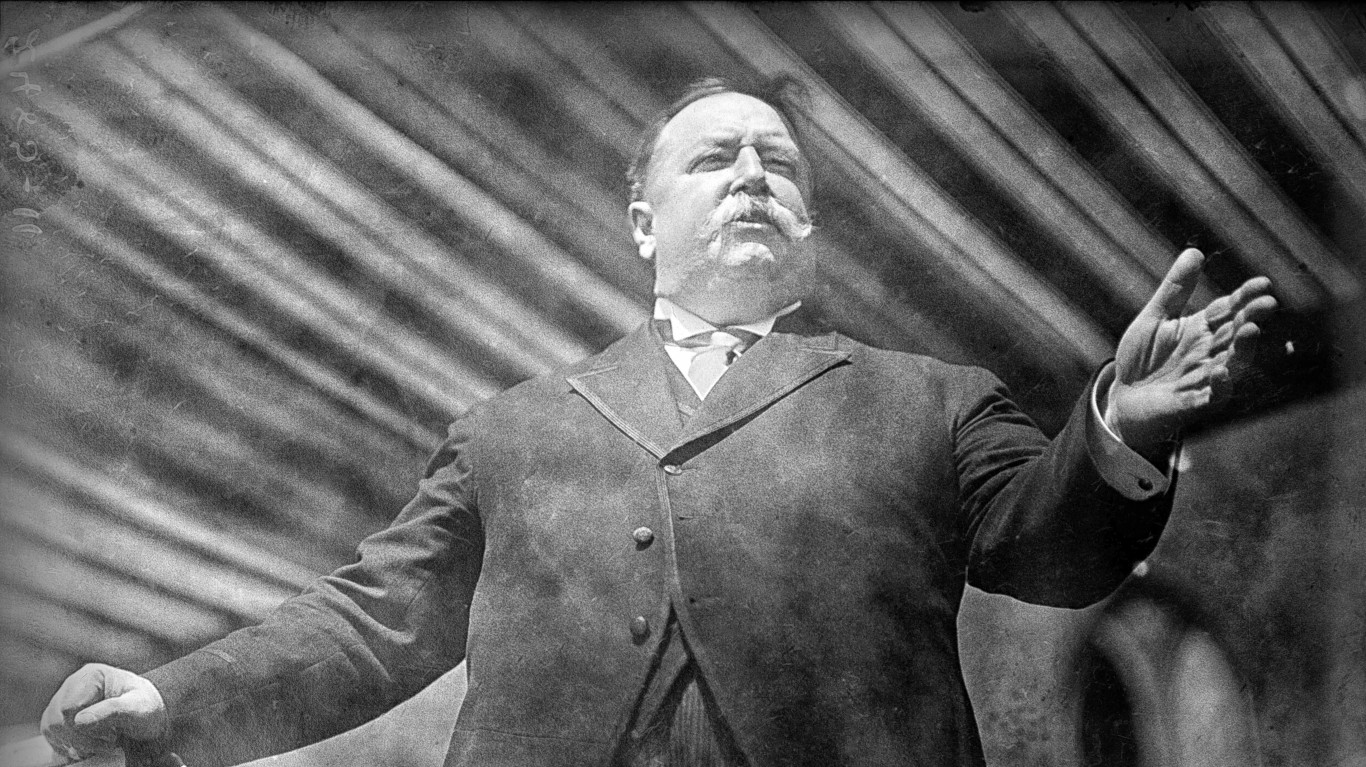
William Howard Taft
> Presidential term: 1909-1913
> Occupation after leaving office: Chief justice of the Supreme Court
Before being appointed chief justice of the United States by President Warren Harding, a position in which he remained almost until his death, William Howard Taft was teaching constitutional law at Yale University.
[in-text-ad]
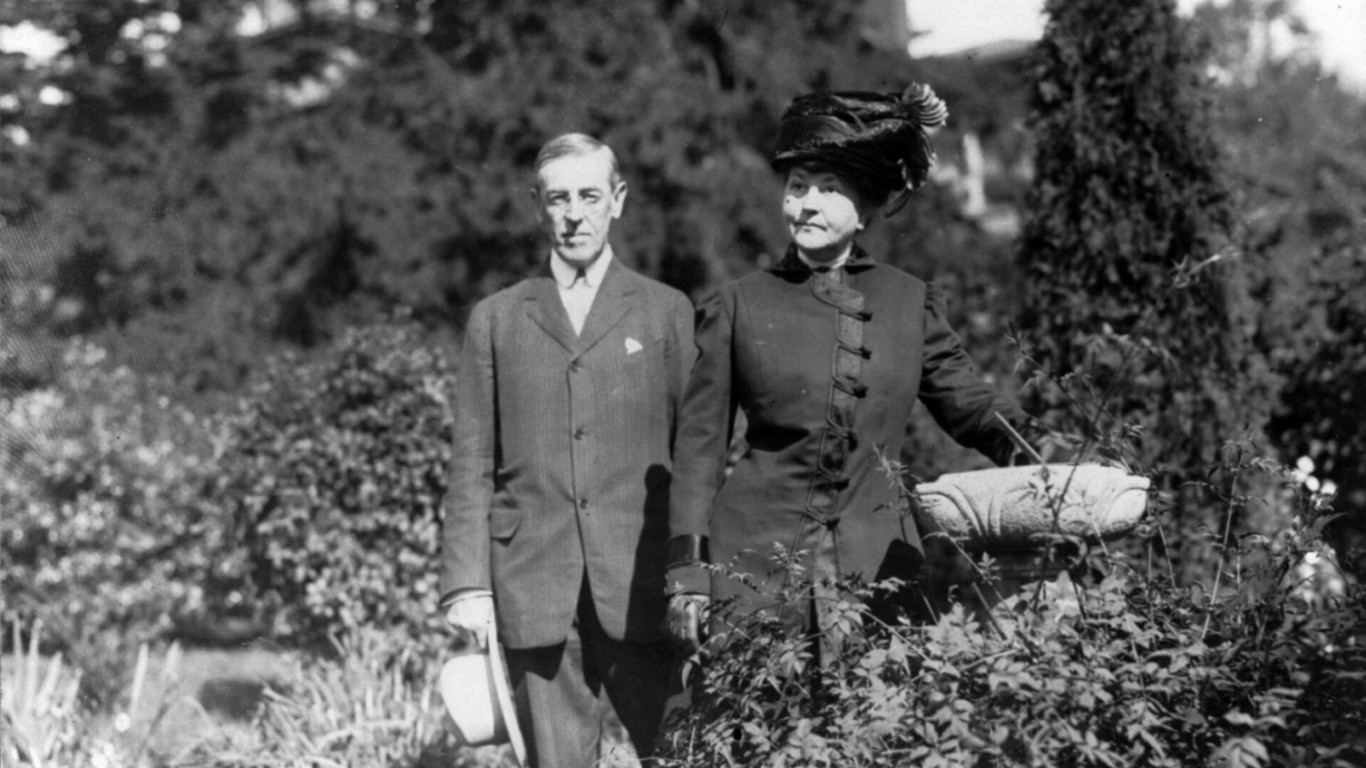
Woodrow Wilson
> Presidential term: 1913-1921
> Occupation after leaving office: Out of public view
Woodrow Wilson stayed out of public view after leaving the White House. He had suffered a stroke two years before the end of his second term. The stroke left him almost blind and partially paralyzed.
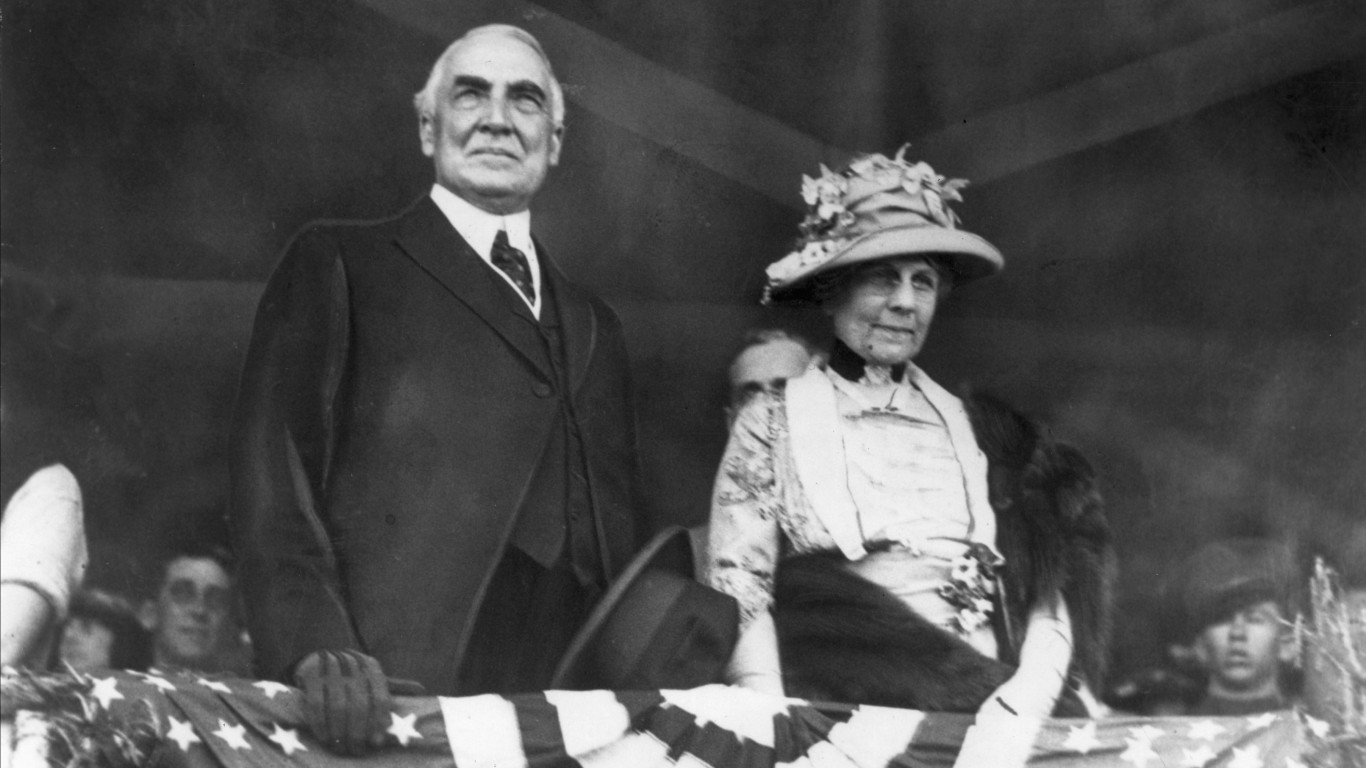
Warren G. Harding
> Presidential term: 1921-1923
> Occupation after leaving office: Died in office
Warren G. Harding died from what is believed to be a heart attack on Aug. 2, 1923, while still in office.
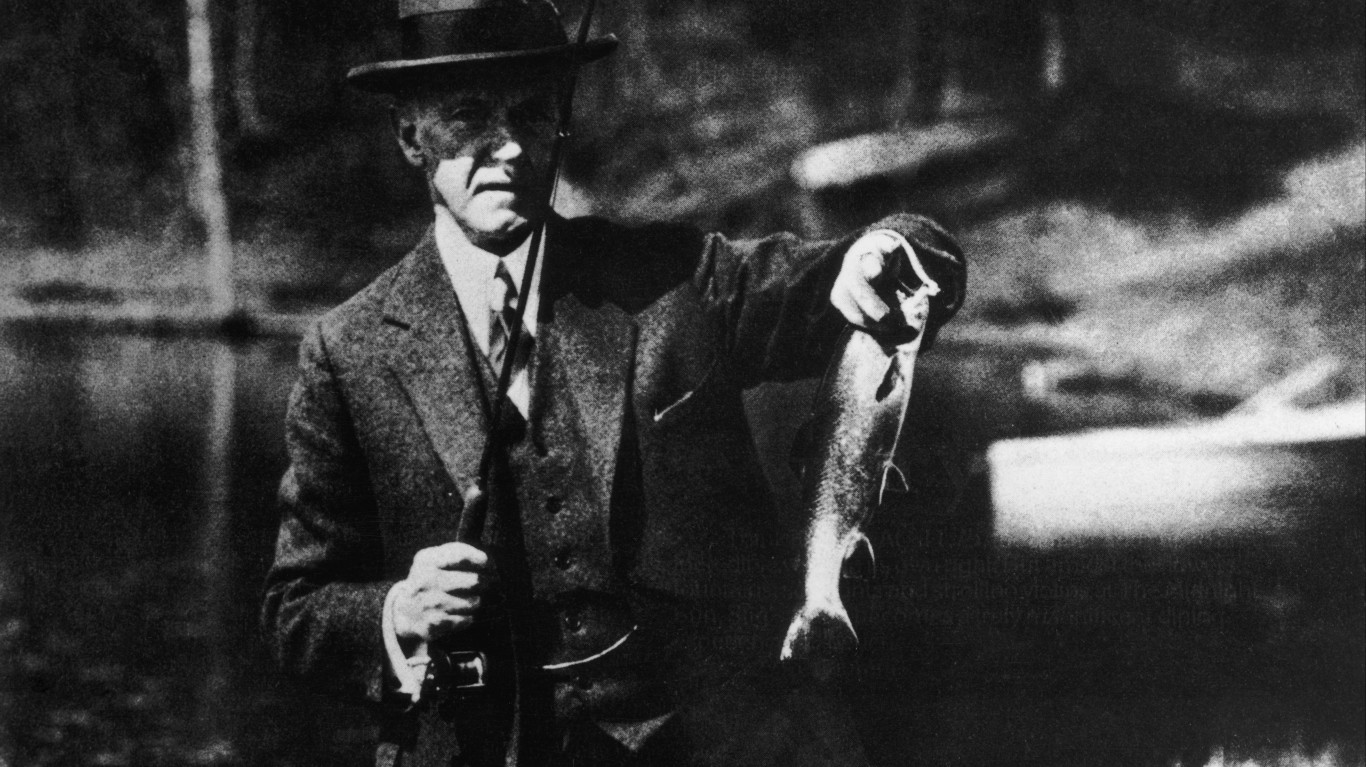
Calvin Coolidge
> Presidential term: 1923-1929
> Occupation after leaving office: Writer
After leaving the White House, Calvin Coolidge retired to Northampton, Massachusetts, where he spent most of his time working on his memoirs. He also contributed to political magazines.
[in-text-ad-2]
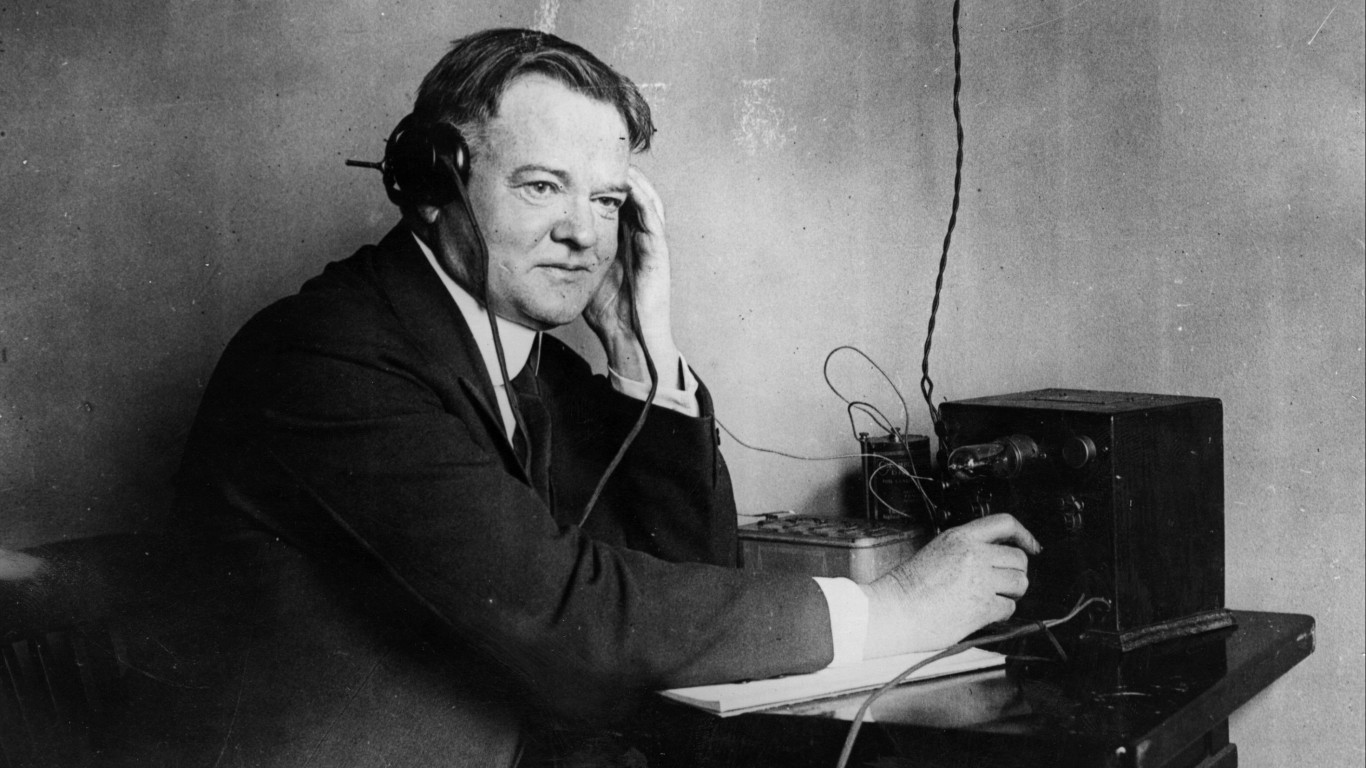
Herbert Hoover
> Presidential term: 1929-1933
> Occupation after leaving office: Political commentator, served on Hoover Commission
Herbert Hoover was an active political commentator after his presidential term. He was a vocal critic of FDR’s New Deal programs, writing many articles and books arguing against the federal government having too much power. He served on several congressional commissions, including the Hoover Commission, or Commission on the Organization of the Executive Branch of Government.
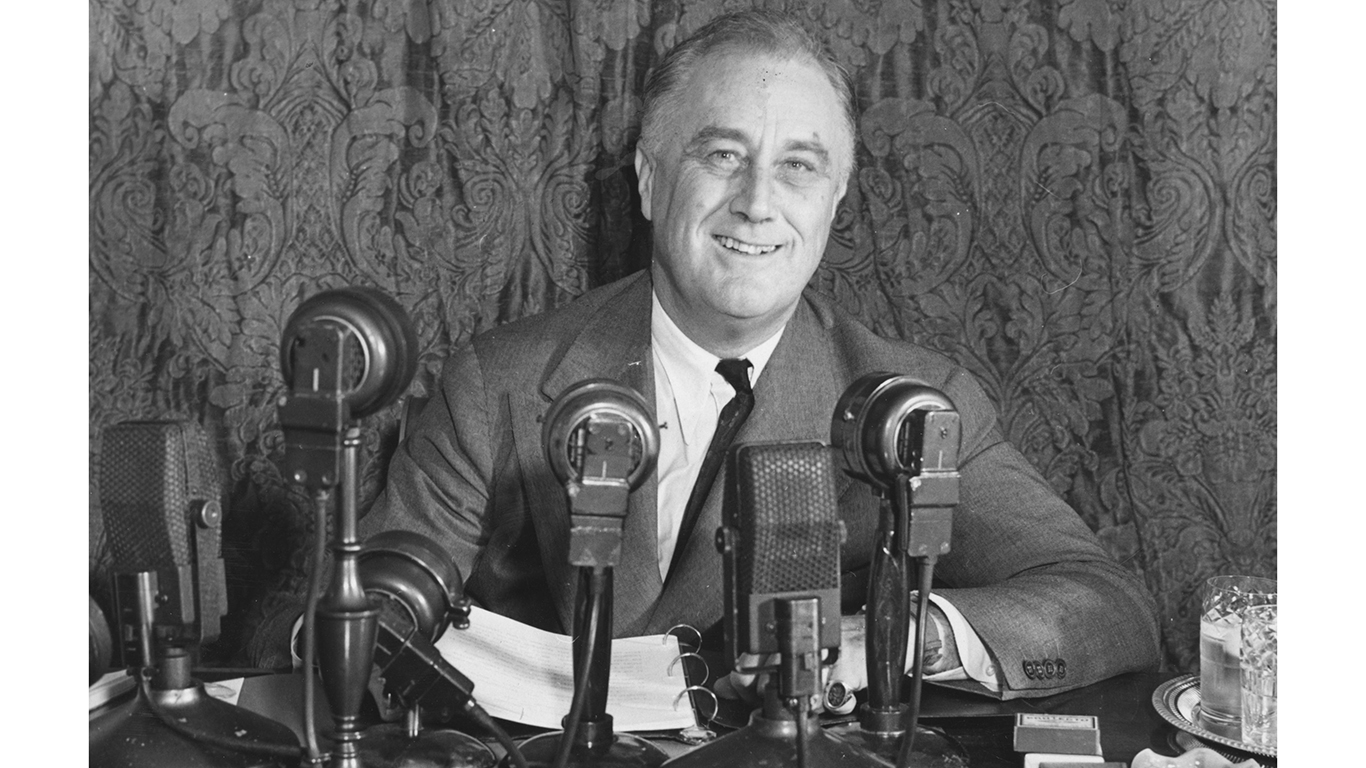
Franklin D. Roosevelt
> Presidential term: 1933-1945
> Occupation after leaving office: Died in office
Franklin D. Rosevelt died in office on April 12, 1945 from a massive cerebral hemorrhage.
[in-text-ad]
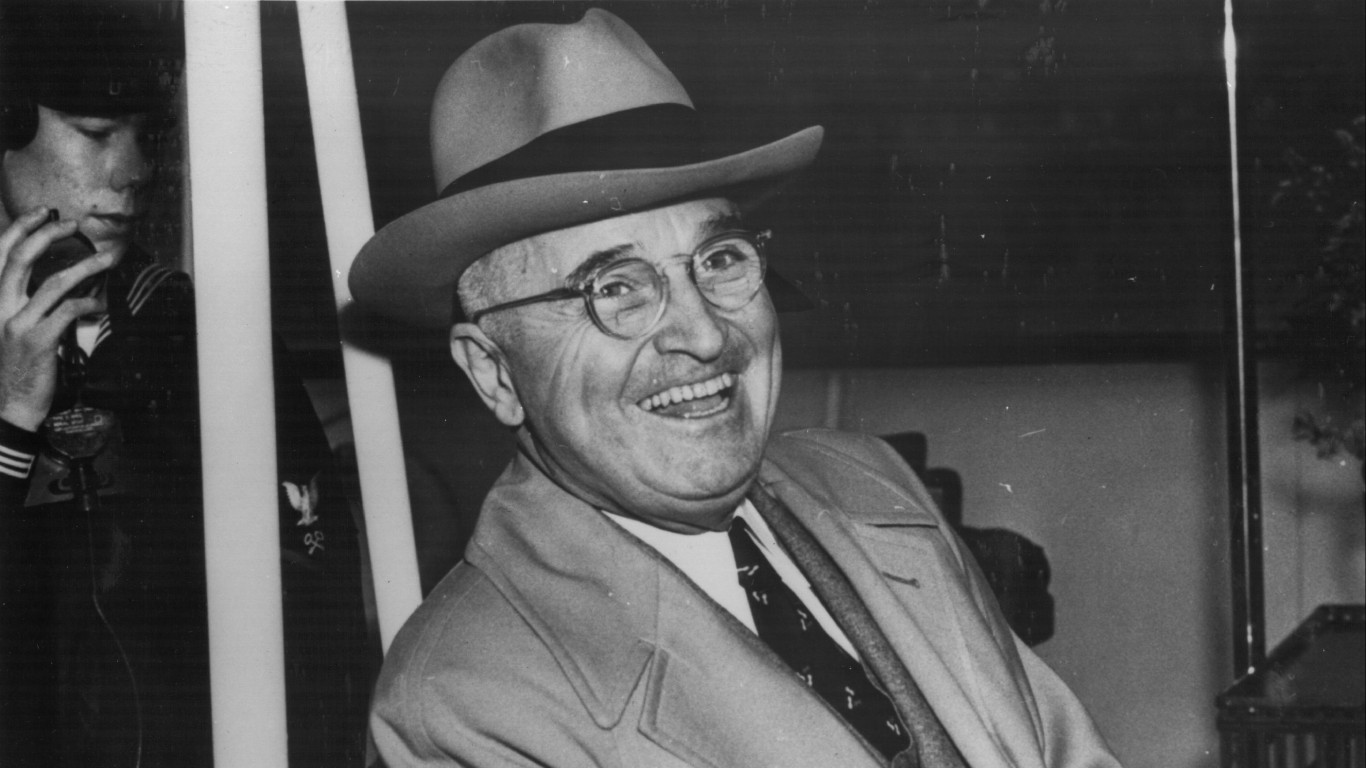
Harry S. Truman
> Presidential term: 1945-1953
> Occupation after leaving office: Writer, political commentator
After leaving the White House, Harry S. Truman retired to Independence, Missouri. He spent most of his time meeting with friends and important guests, commenting on political events, and working on his legacy by overseeing the construction of the Truman presidential library.
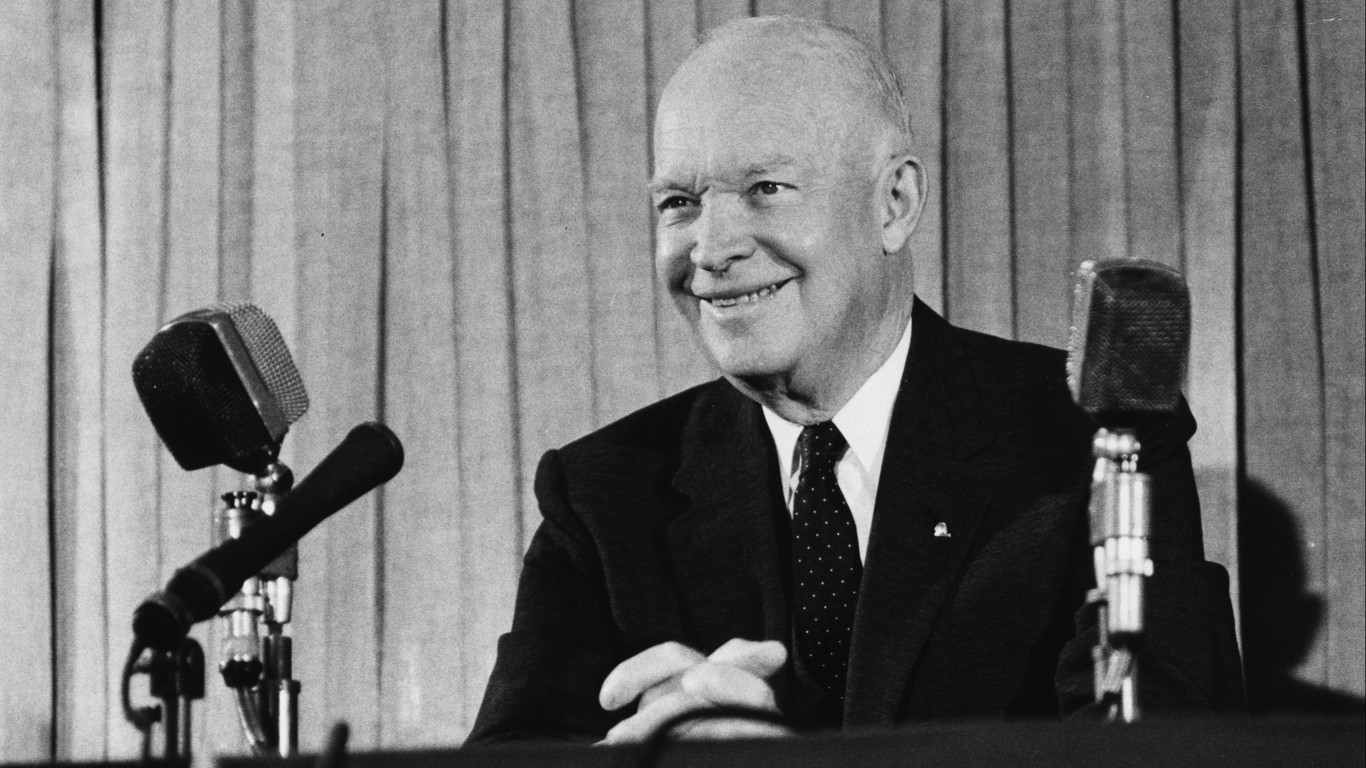
Dwight D. Eisenhower
> Presidential term: 1953-1961
> Occupation after leaving office: Writer
Eisenhower retired to his farm in Gettysburg, Pennsylvania, where he worked on his memoirs. He often consulted with President Lyndon B. Johnson. He also wrote a bestseller, “At Ease: Stories I Tell to Friends.”
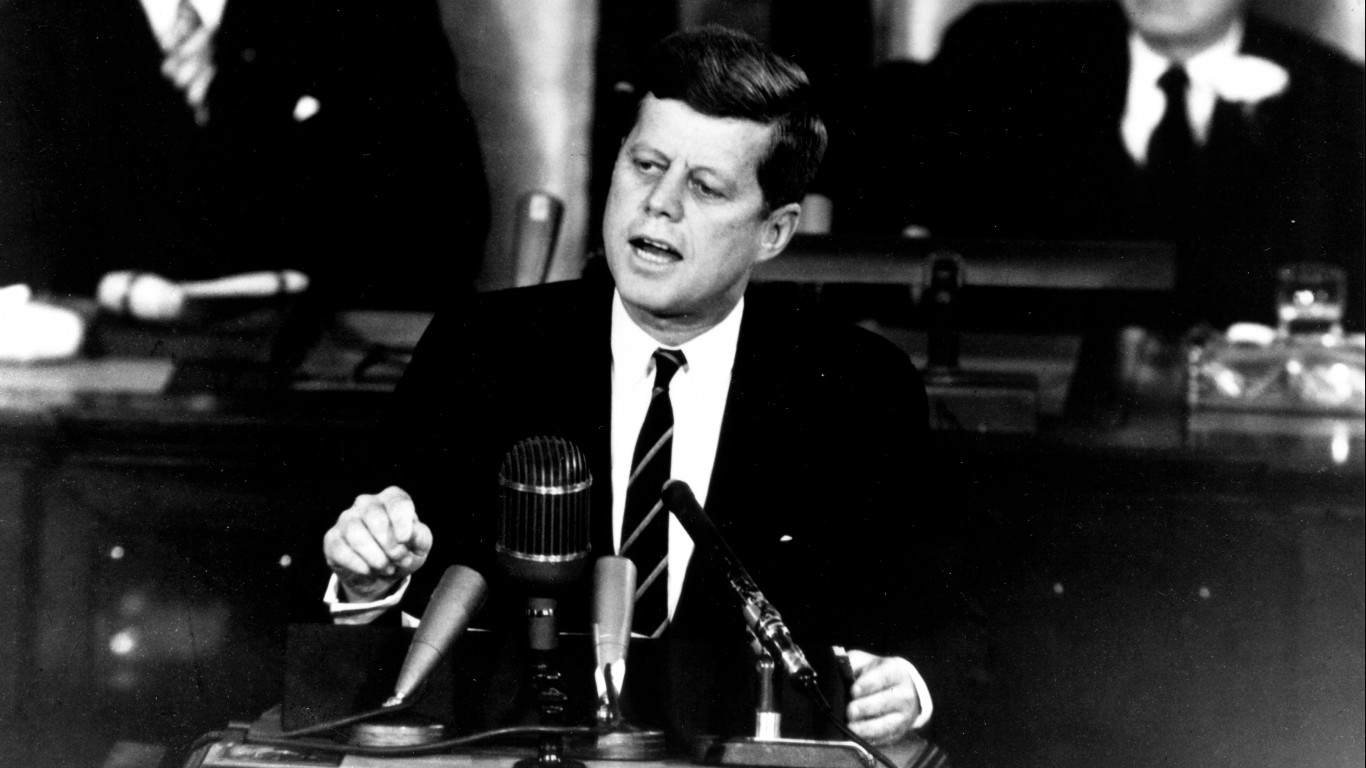
John F. Kennedy
> Presidential term: 1961-1963
> Occupation after leaving office: Assassinated while in office
John F. Kennedy was assassinated while in office. Kennedy was shot on Nov. 22, 1963 in Dallas, Texas, as the presidential motorcade was passing through downtown.
[in-text-ad-2]
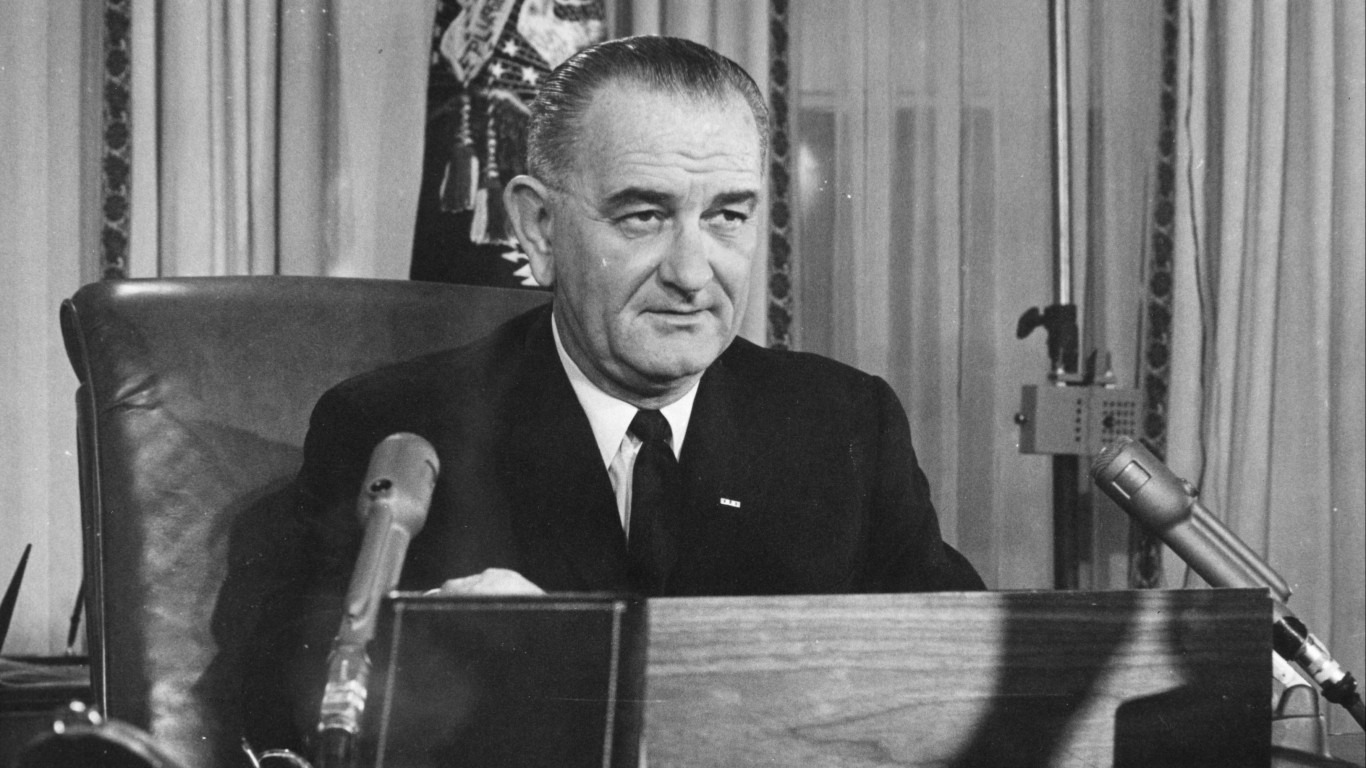
Lyndon B. Johnson
> Presidential term: 1963-1969
> Occupation after leaving office: Investor, writer
Lyndon B. Johnson retired to his Texas ranch — now a National Historical Park — where he spent most of his time working on developing his presidential library at the University of Texas in Austin. Johnson also spent his time writing his memoirs.
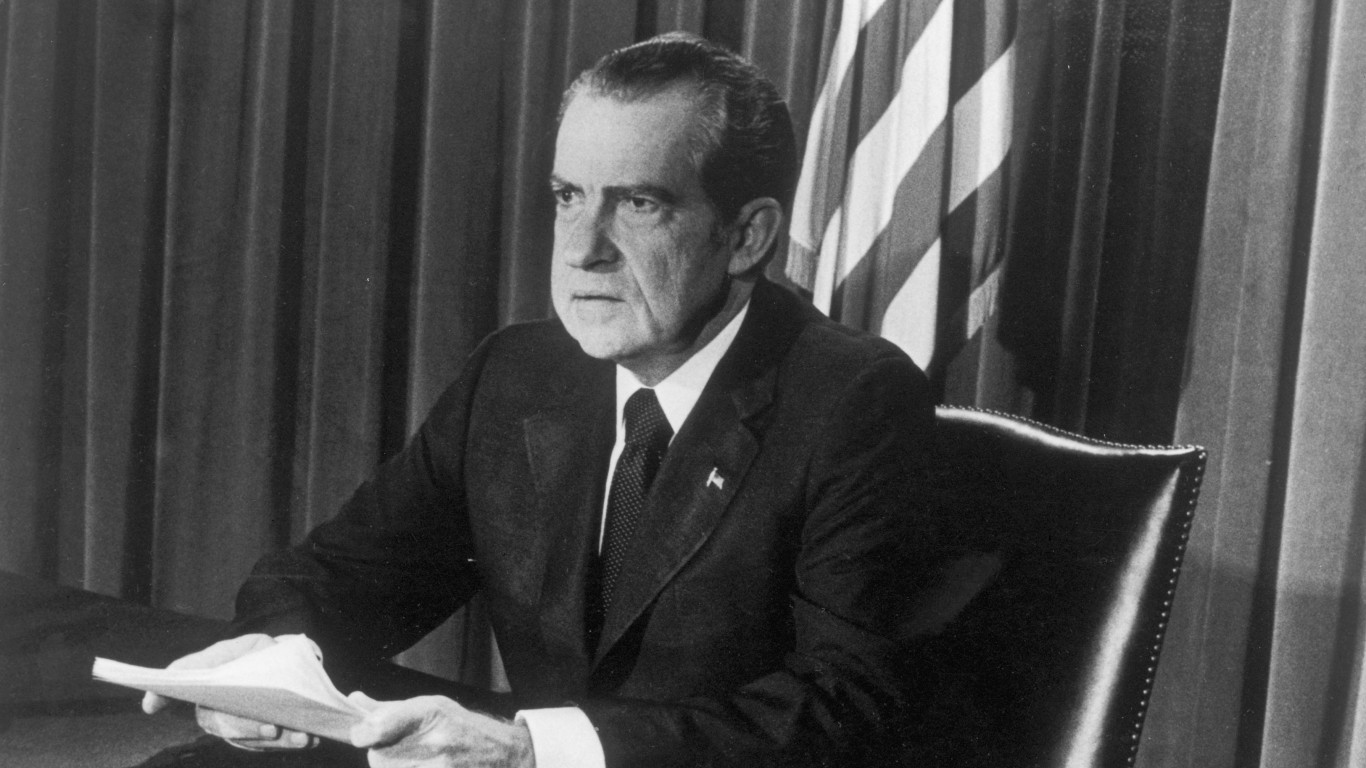
Richard M. Nixon
> Presidential term: 1969-1974
> Occupation after leaving office: Public speaker, writer
After resigning from office, Richard M. Nixon moved to San Clemente, California. He first wrote a memoir and gave paid public speeches as a way to pay off his considerable debt, which had accumulated to pay for legal expenses in the Watergate scandal. After that, he worked on restoring his reputation by giving speeches around the world and writing books.
[in-text-ad]
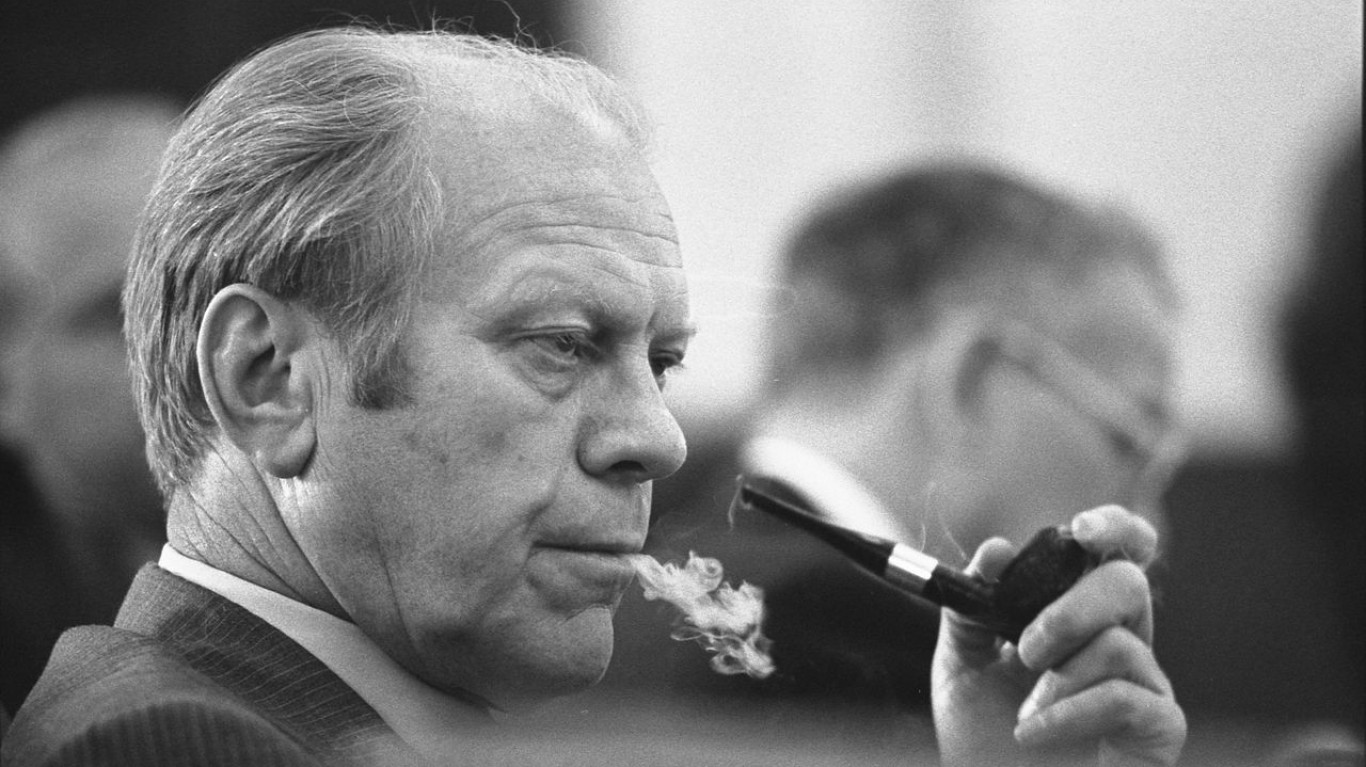
Gerald R. Ford
> Presidential term: 1974-1977
> Occupation after leaving office: Public speaker
Gerald R. Ford occupied himself in retirement by giving speeches and serving on the board or several large corporations. He also spent much of his time golfing and skiing.
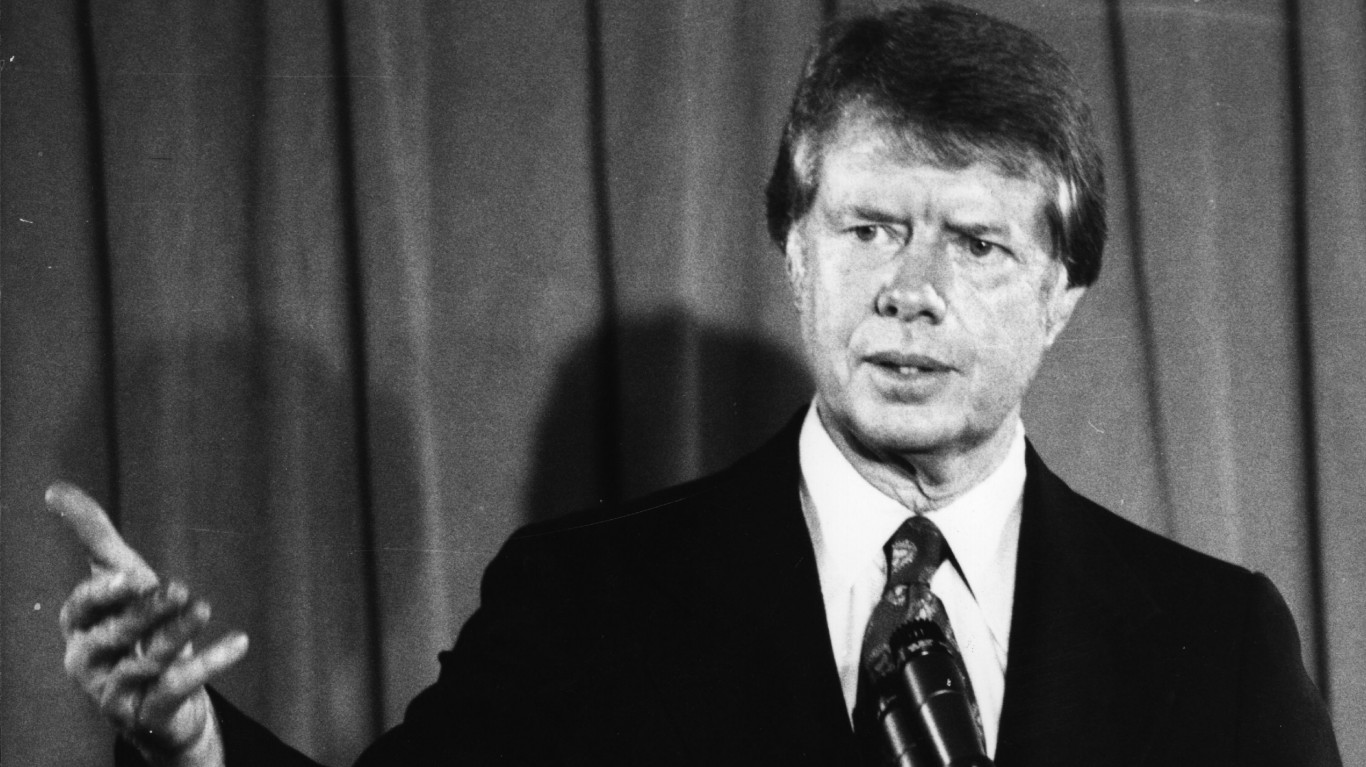
James Carter
> Presidential term: 1977-1981
> Occupation after leaving office: Writer, activist
At 96, Jimmy Carter is the oldest living president. He is also currently living the longest post-presidency life — 39 years and counting. After leaving the White House, Carter established a nonprofit organization, wrote books, and continued diplomatic activities around the world. He serves as University Distinguished Professor at Emory.
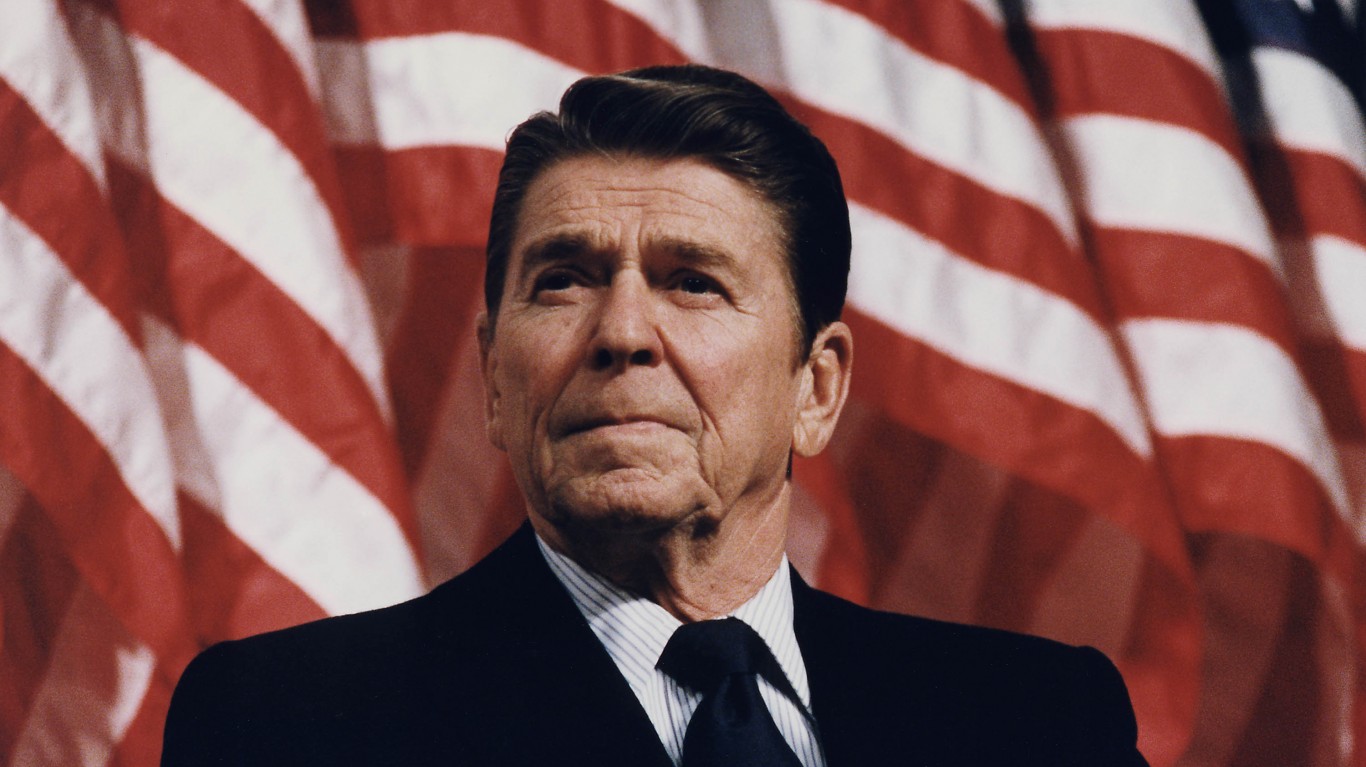
Ronald Reagan
> Presidential term: 1981-1989
> Occupation after leaving office: Out of public view
Ronald Reagan moved to Los Angeles after leaving the White House. There he worked on the Reagan presidential library, which opened in Simi Valley in 1991. Three years later, he announced he had been diagnosed with Alzheimer’s disease and remained largely out of public view until his deaths in 2004.
[in-text-ad-2]
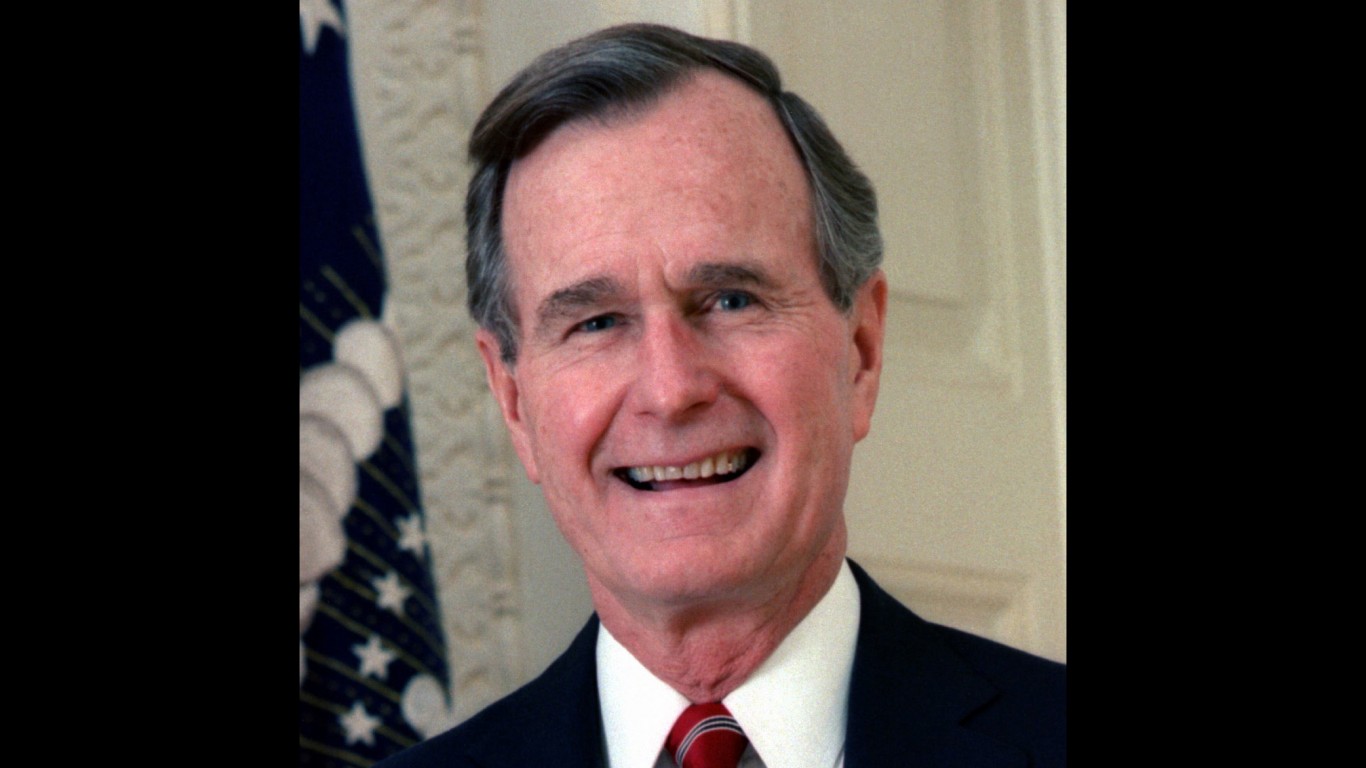
George H. W. Bush
> Presidential term: 1989-1993
> Occupation after leaving office: Member of several boards
George H. W. Bush returned to his home in Houston, Texas, after leaving the presidency. He remained active by serving on various boards of companies and a local hospital as well as volunteering at a local church. He also worked on his presidential library, which opened at the Texas A&M University in College Station, Texas.
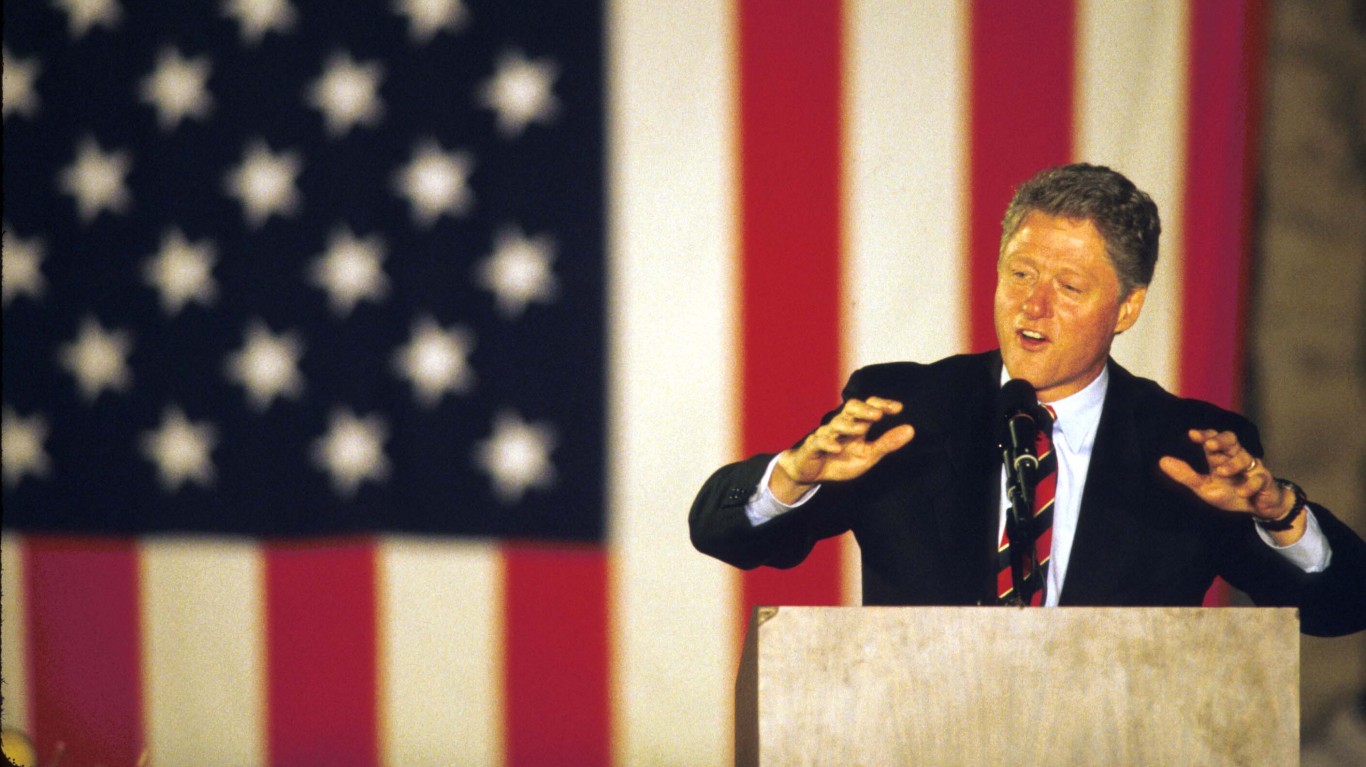
William J. Clinton
> Presidential term: 1993-2001
> Occupation after leaving office: Public speaker, political analyst
Bill Clinton has stayed active in public life giving paid speeches and through his William J. Clinton Foundation, the goal of which is to fight AIDS and help poor people. After leaving the White House, he wrote a memoir and oversaw the establishment of his presidential library in Little Rock, Arkansas.
[in-text-ad]
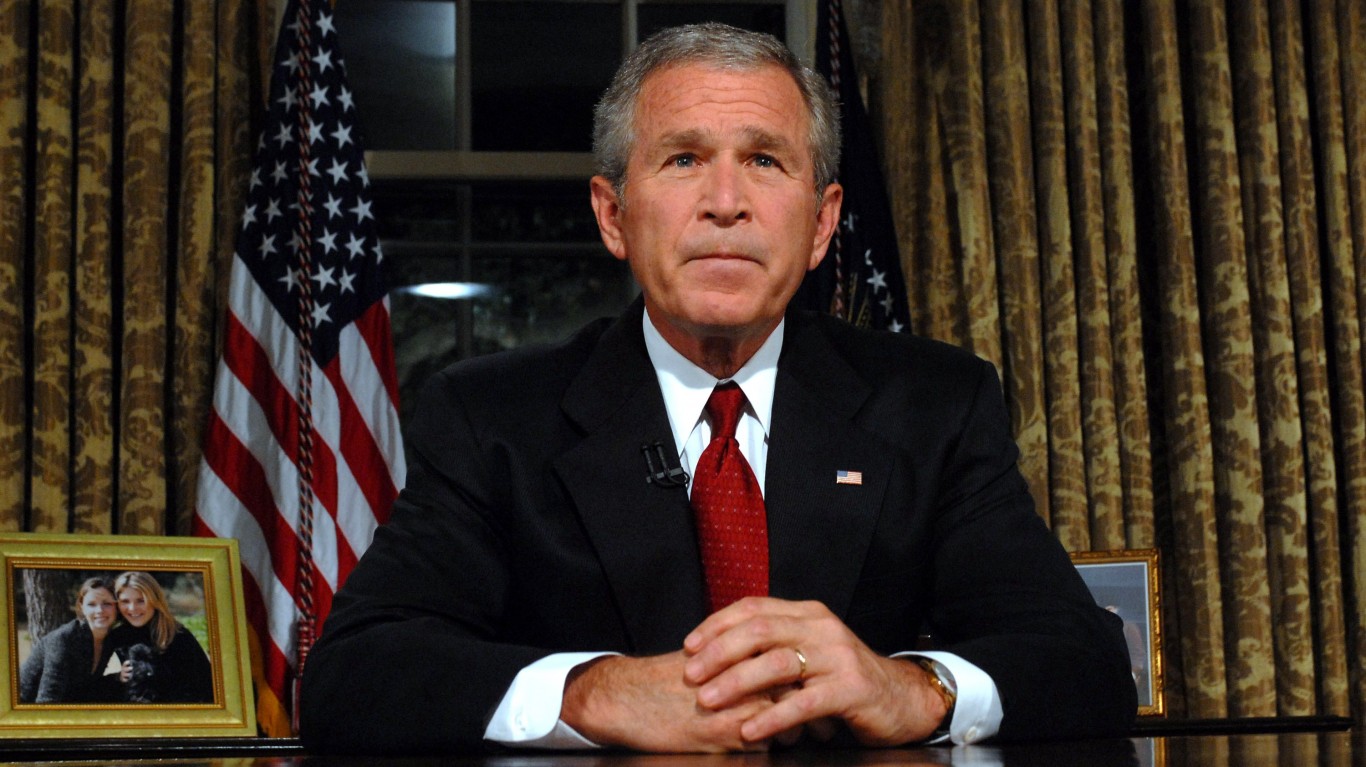
George W. Bush
> Presidential term: 2001-2009
> Occupation after leaving office: Amateur painter
George W. Bush has not been very politically active after leaving the White House. He occasionally gave paid speeches and has become an amateur painter.
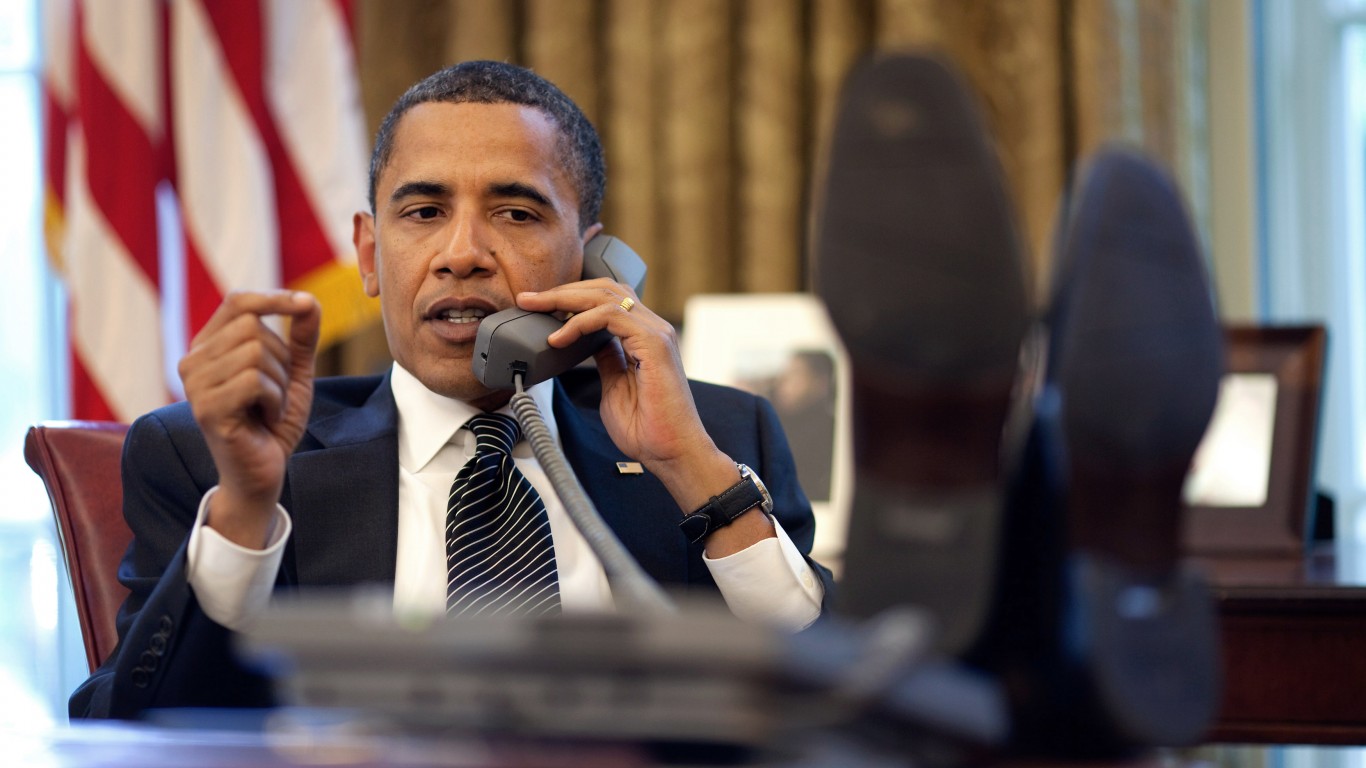
Barack Obama
> Presidential term: 2009-2017
> Occupation after leaving office: Public speaker
With the exception of a few policy-related pronouncements and supporting Joe Biden in his bid for president, Obama has remained mostly out of America’s political life. He has spent his time after leaving office writing a memoir, traveling, and giving paid public speeches.
Is Your Money Earning the Best Possible Rate? (Sponsor)
Let’s face it: If your money is just sitting in a checking account, you’re losing value every single day. With most checking accounts offering little to no interest, the cash you worked so hard to save is gradually being eroded by inflation.
However, by moving that money into a high-yield savings account, you can put your cash to work, growing steadily with little to no effort on your part. In just a few clicks, you can set up a high-yield savings account and start earning interest immediately.
There are plenty of reputable banks and online platforms that offer competitive rates, and many of them come with zero fees and no minimum balance requirements. Click here to see if you’re earning the best possible rate on your money!
Thank you for reading! Have some feedback for us?
Contact the 24/7 Wall St. editorial team.
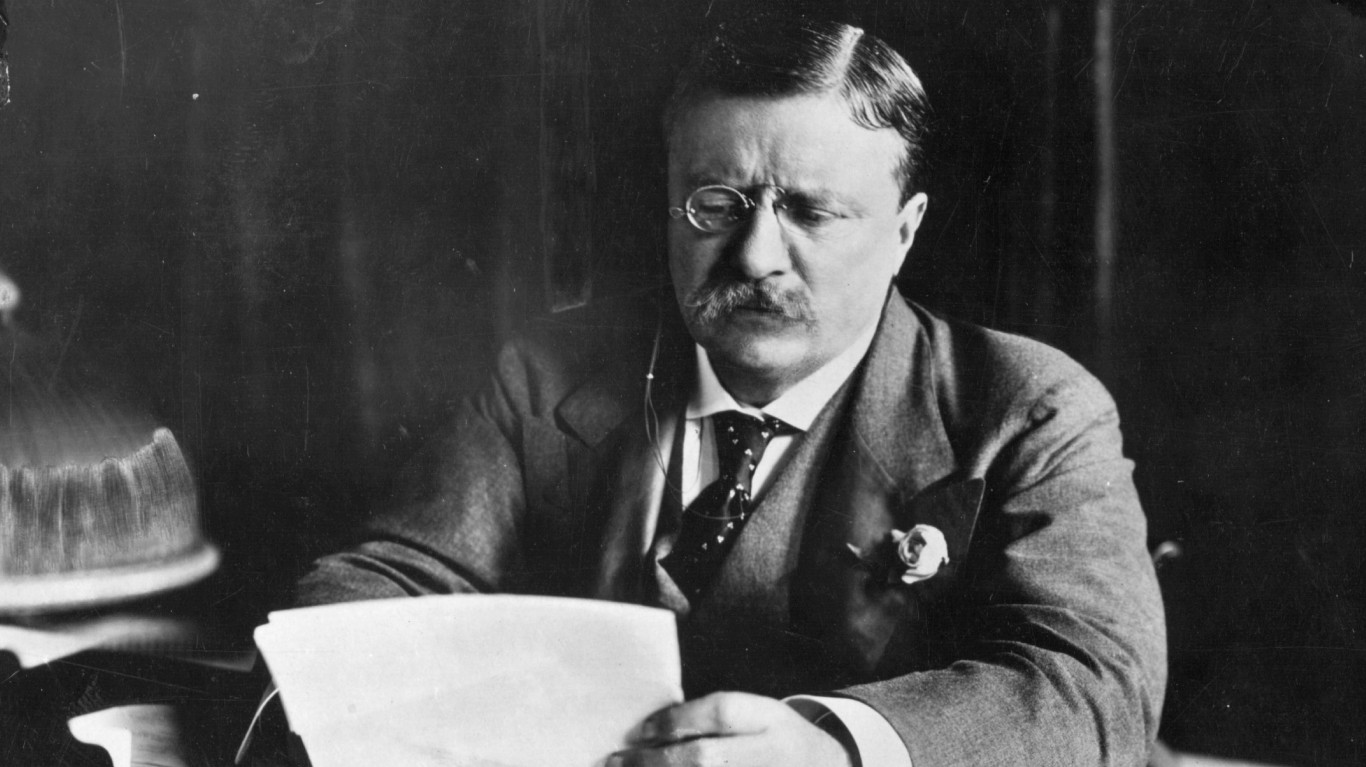 24/7 Wall St.
24/7 Wall St.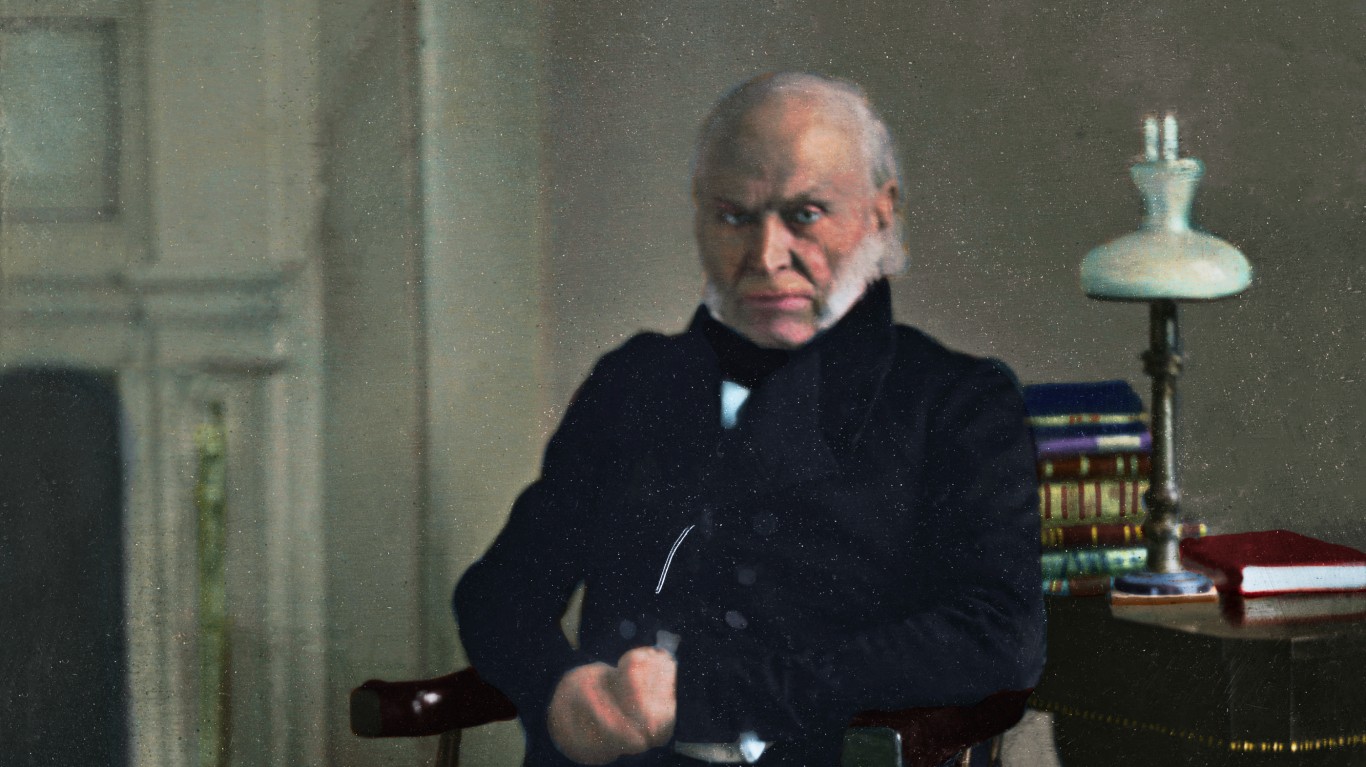
 24/7 Wall St.
24/7 Wall St.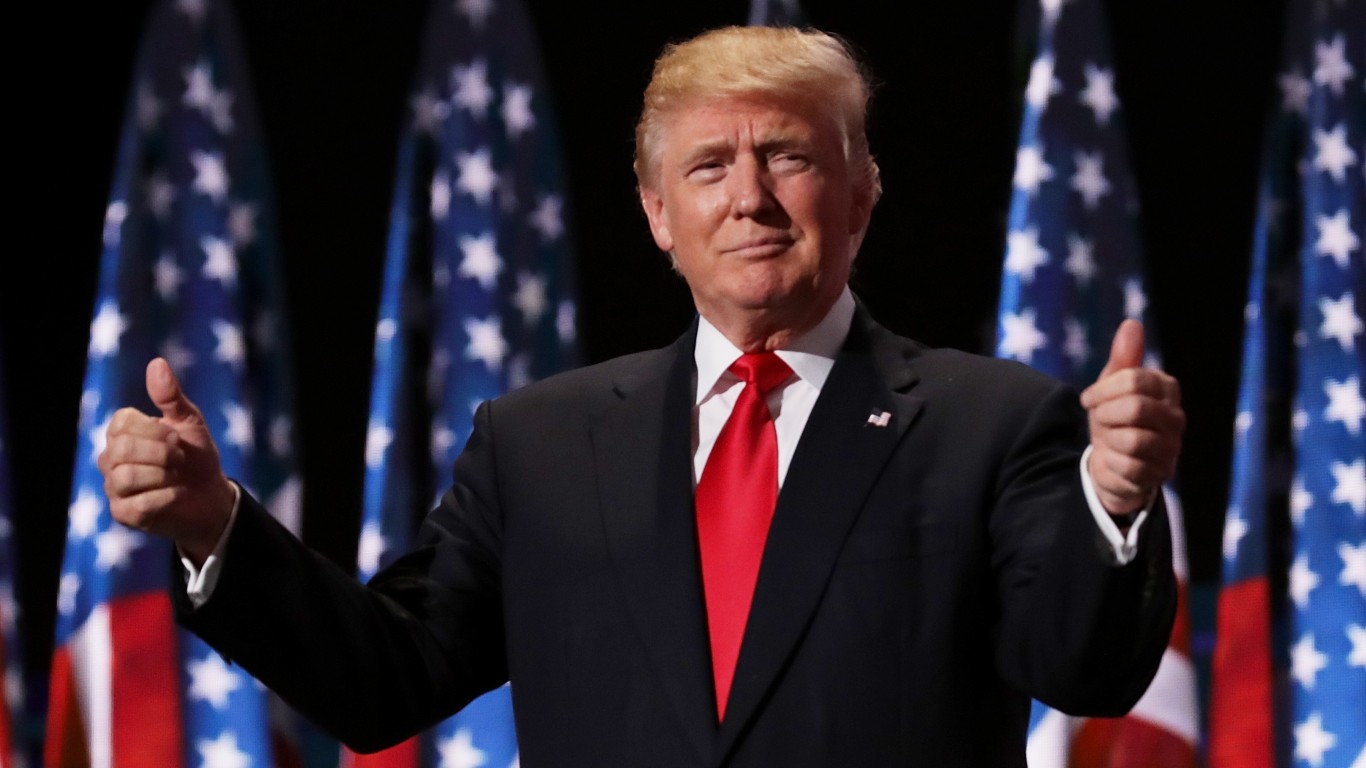 24/7 Wall St.
24/7 Wall St.